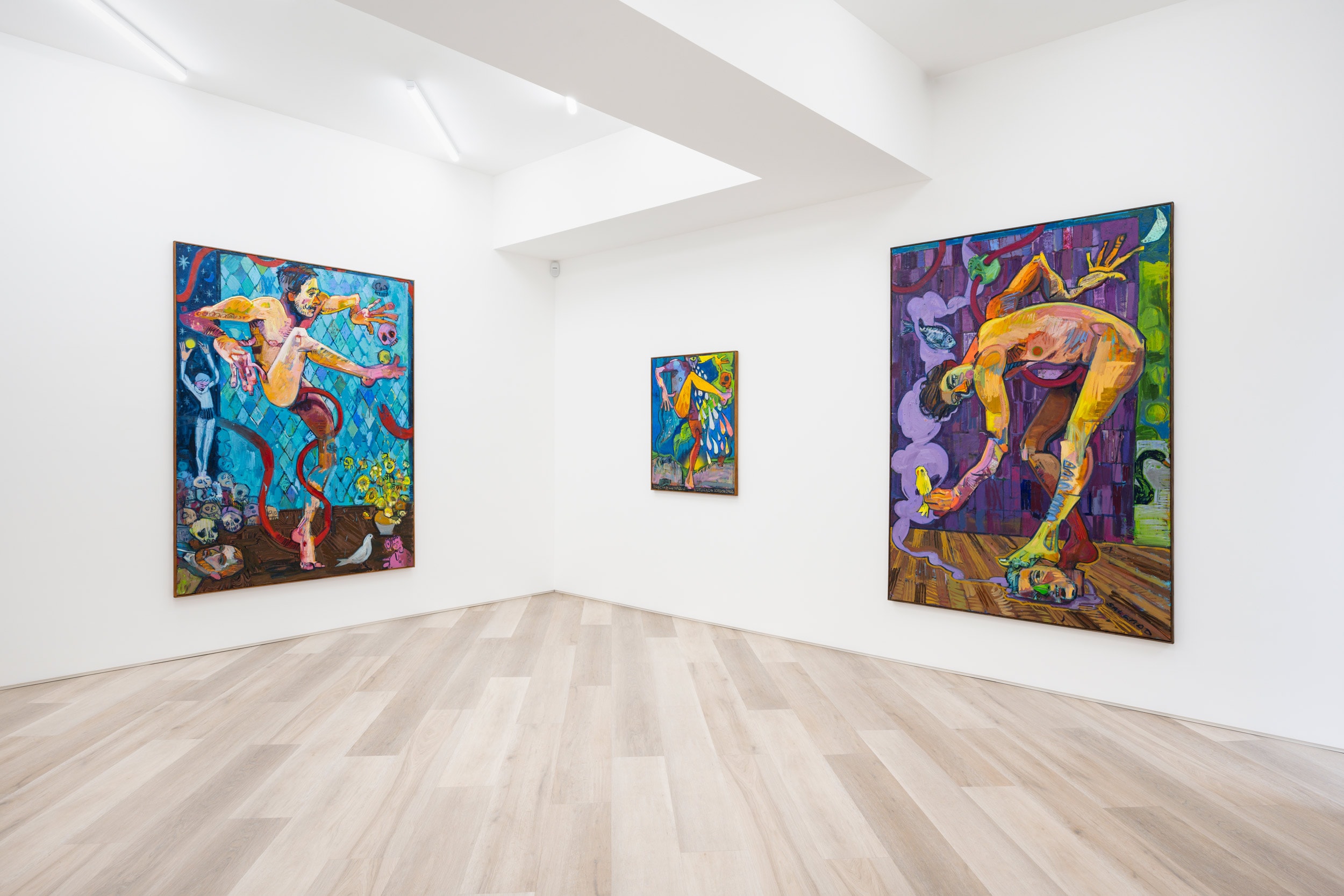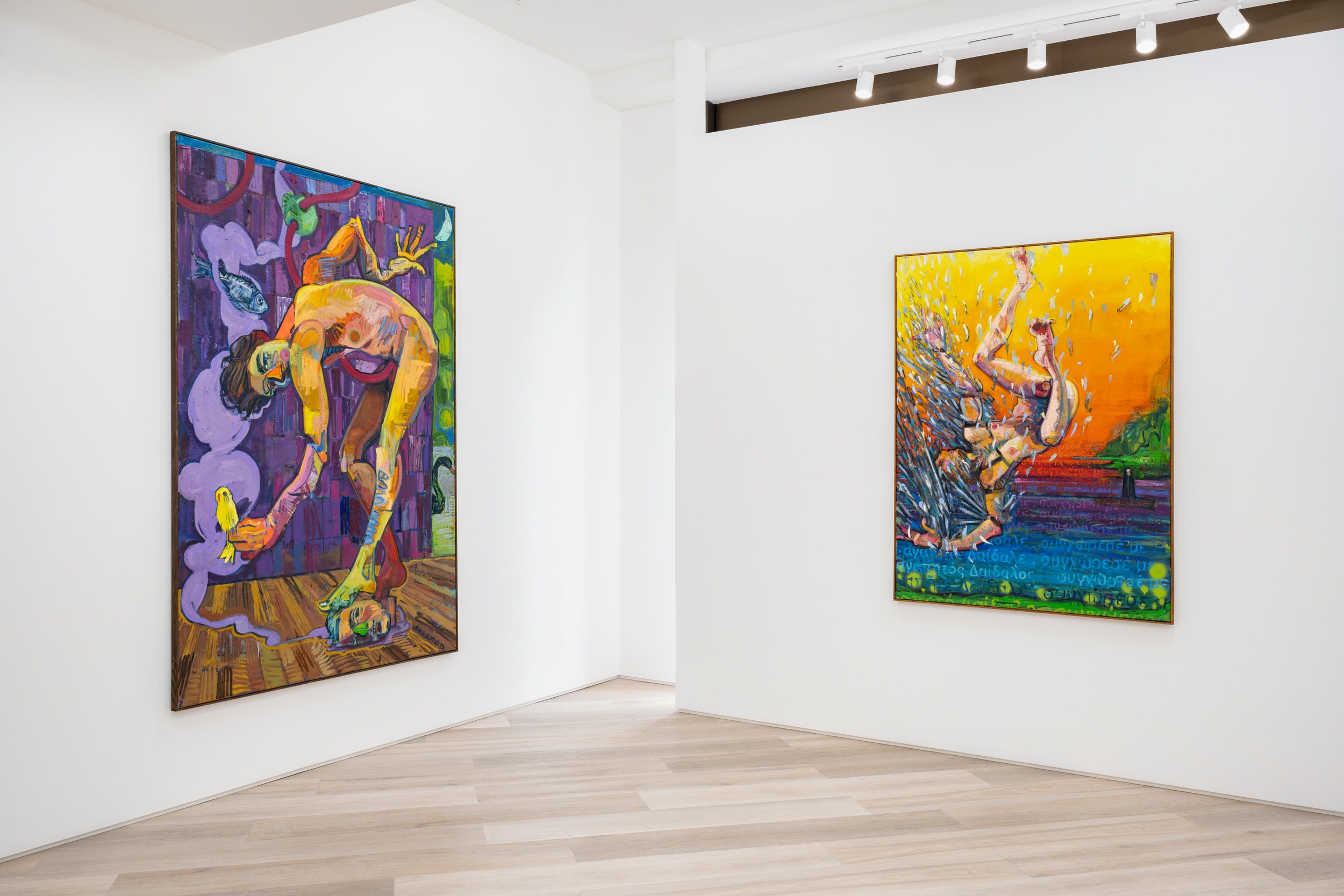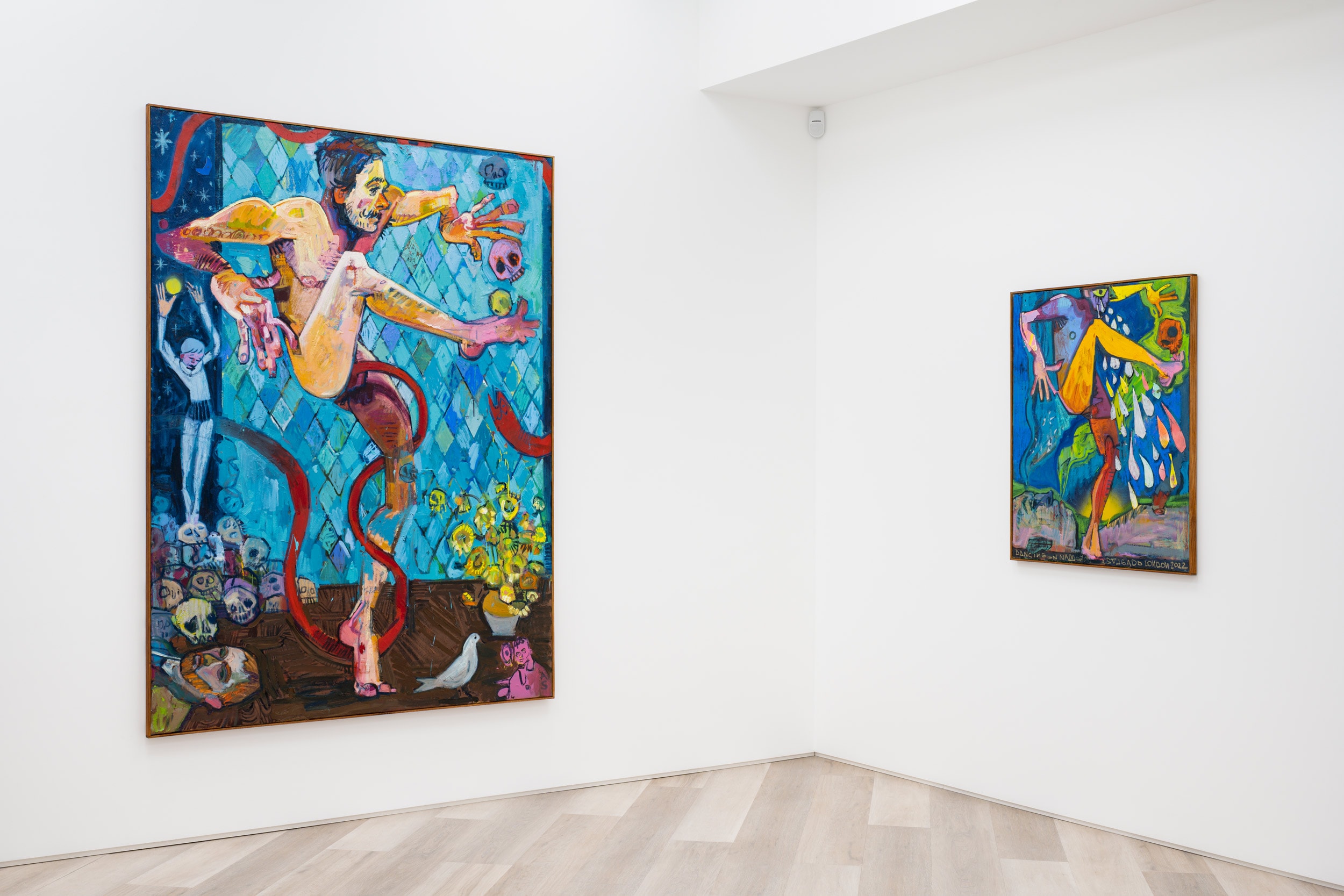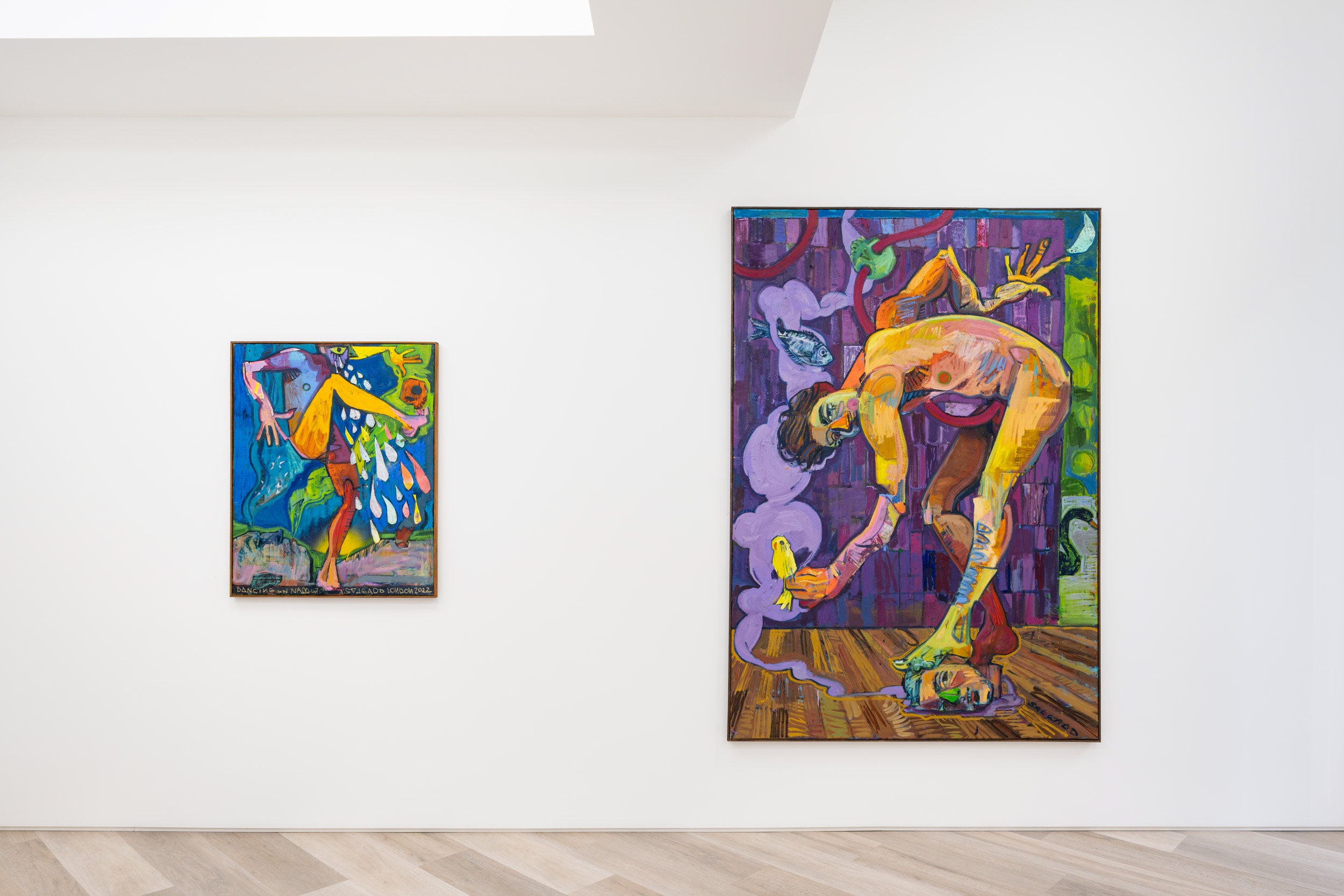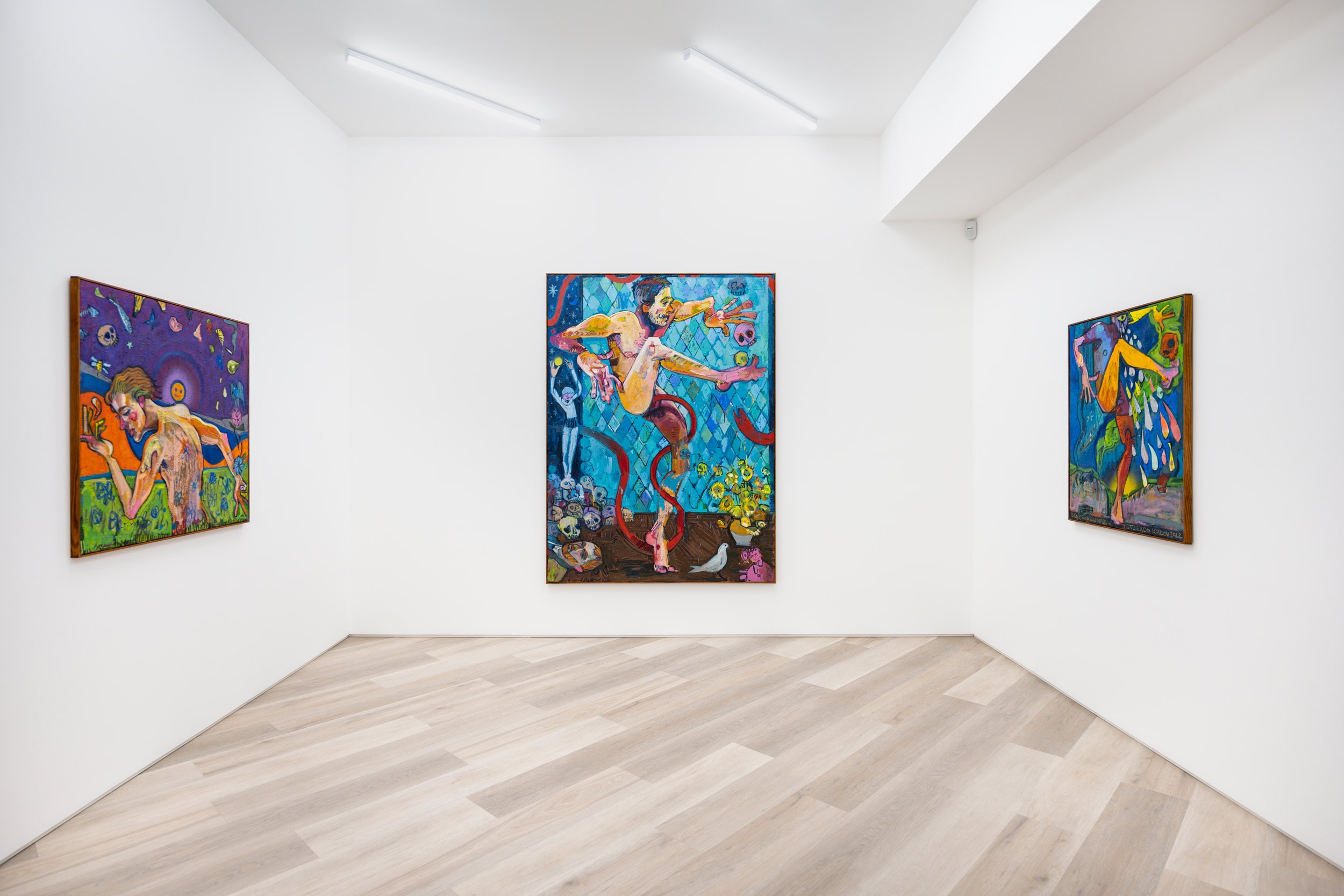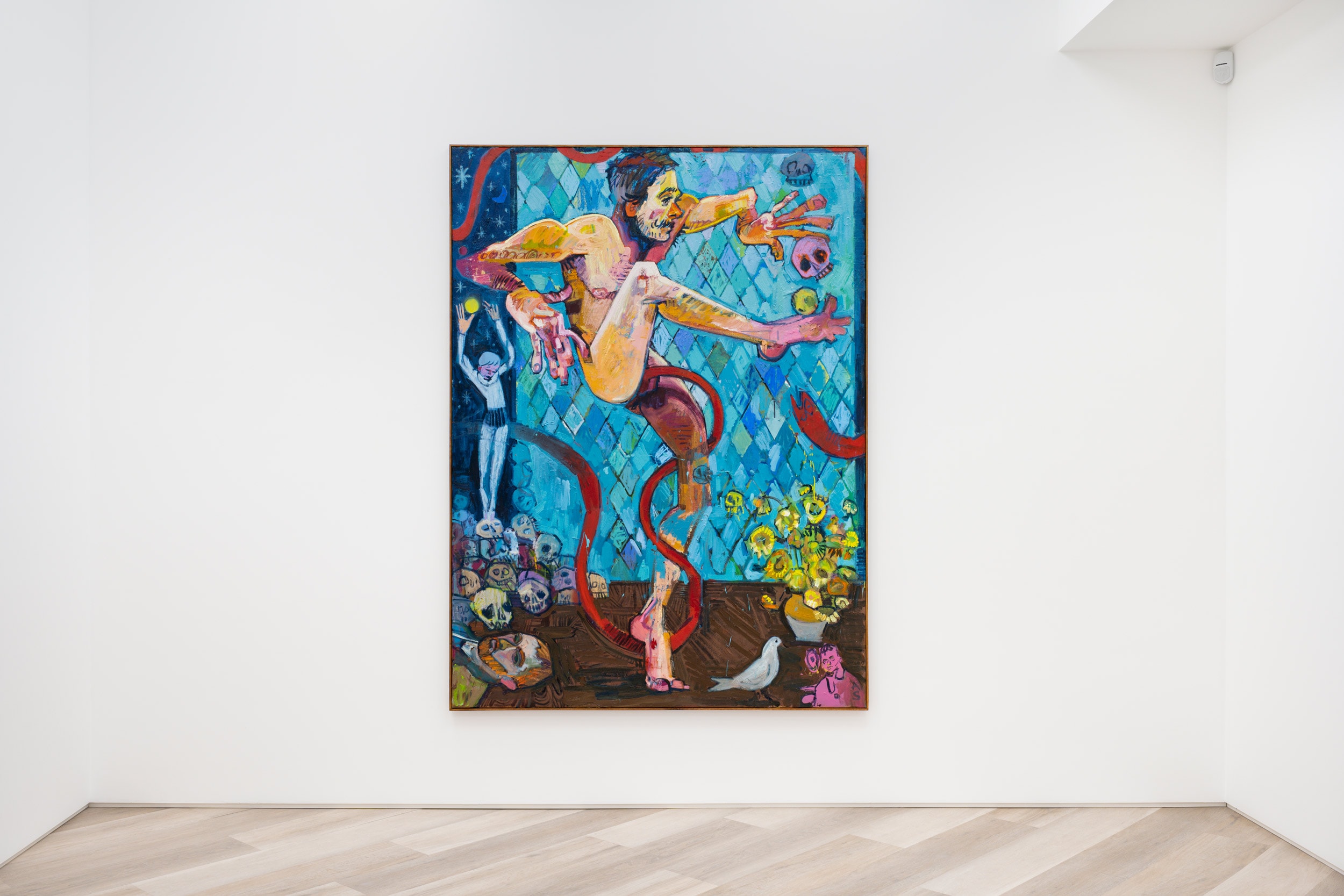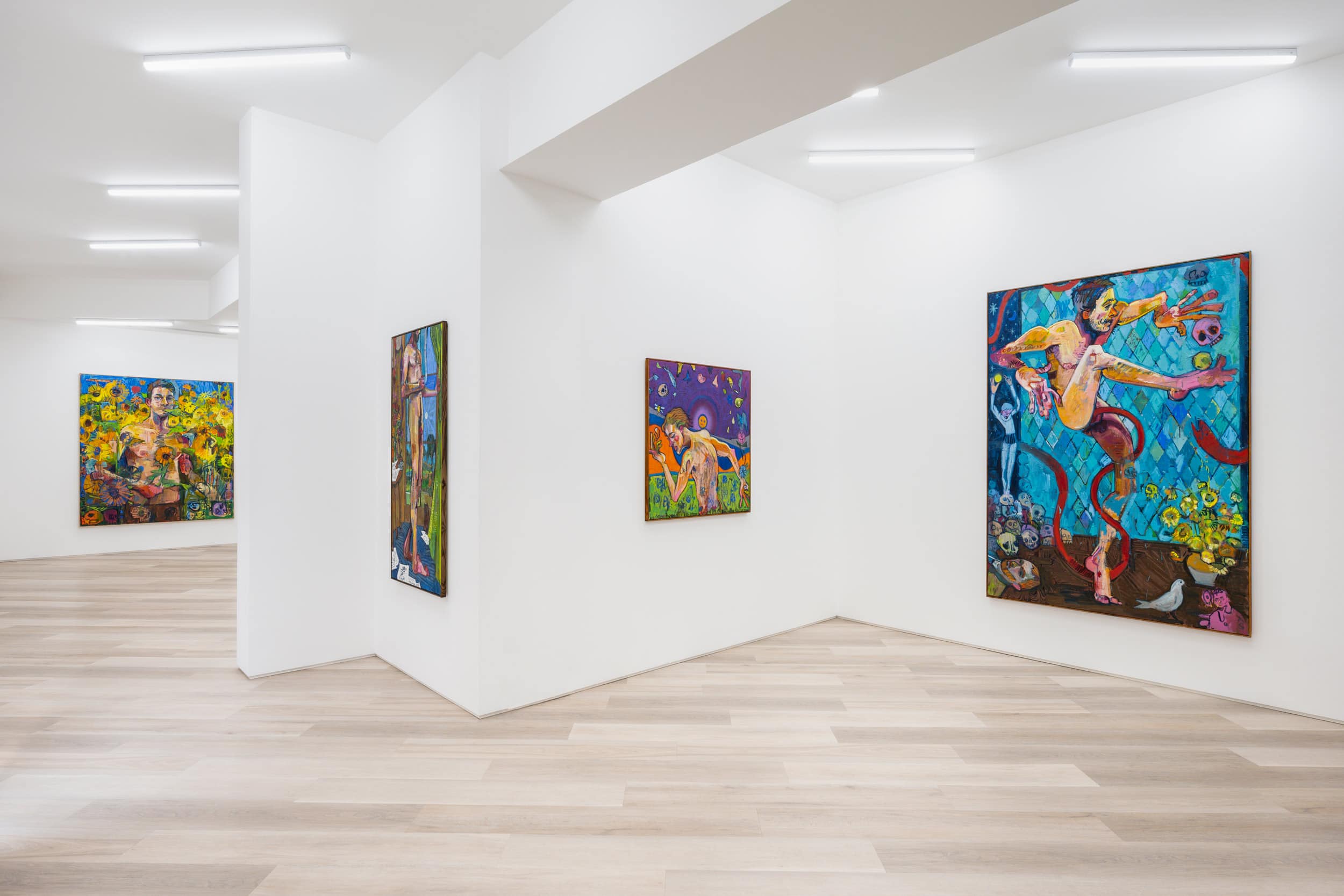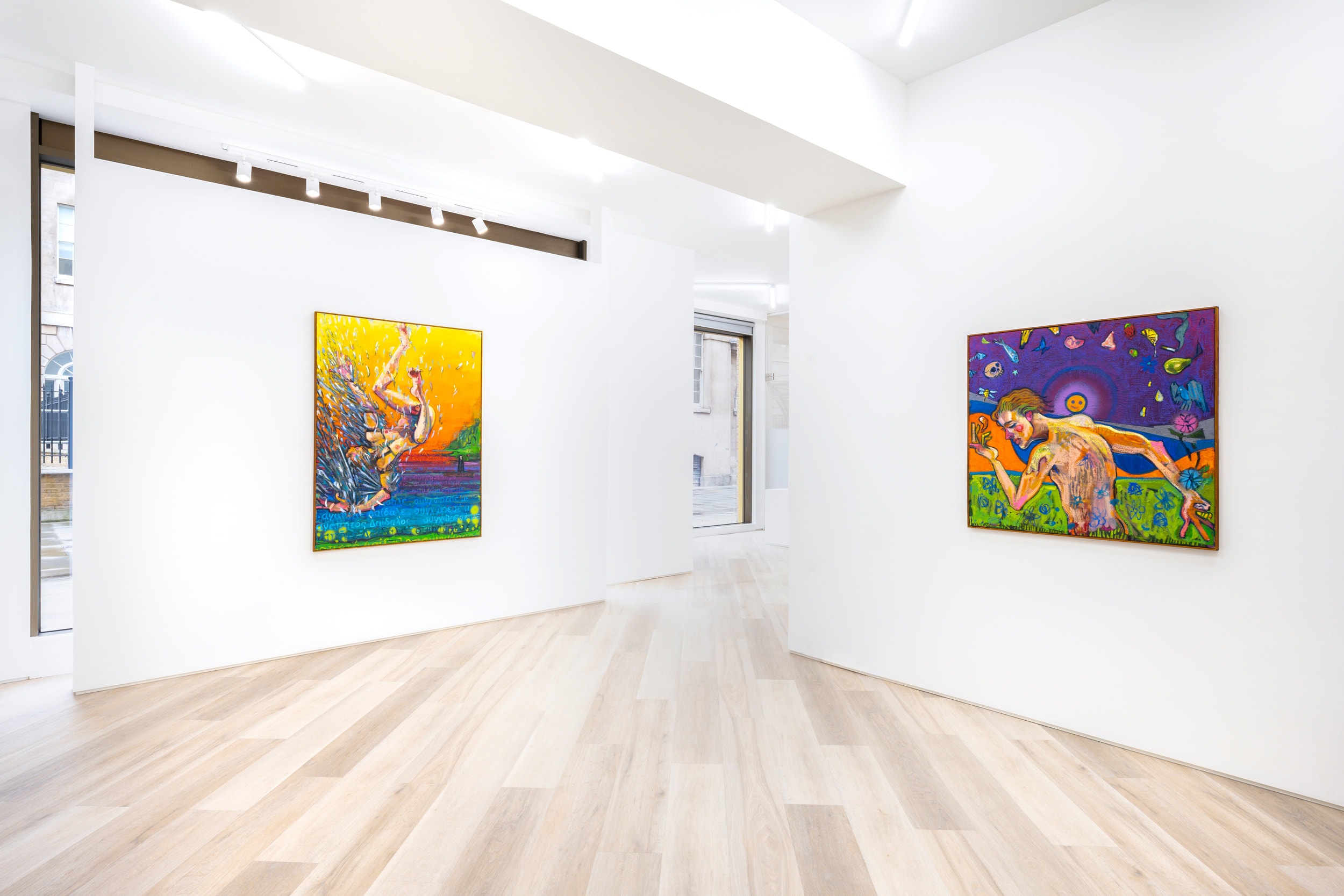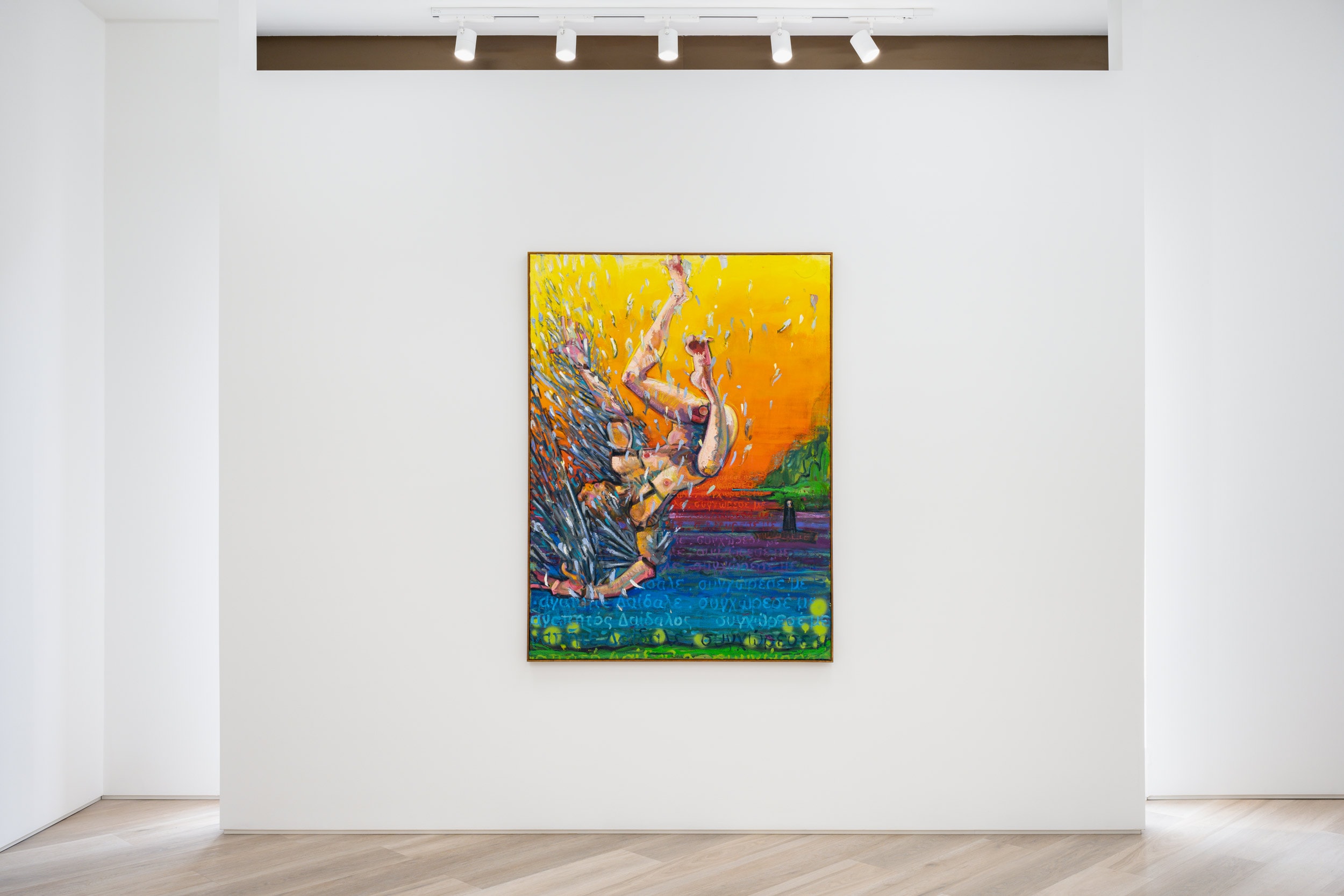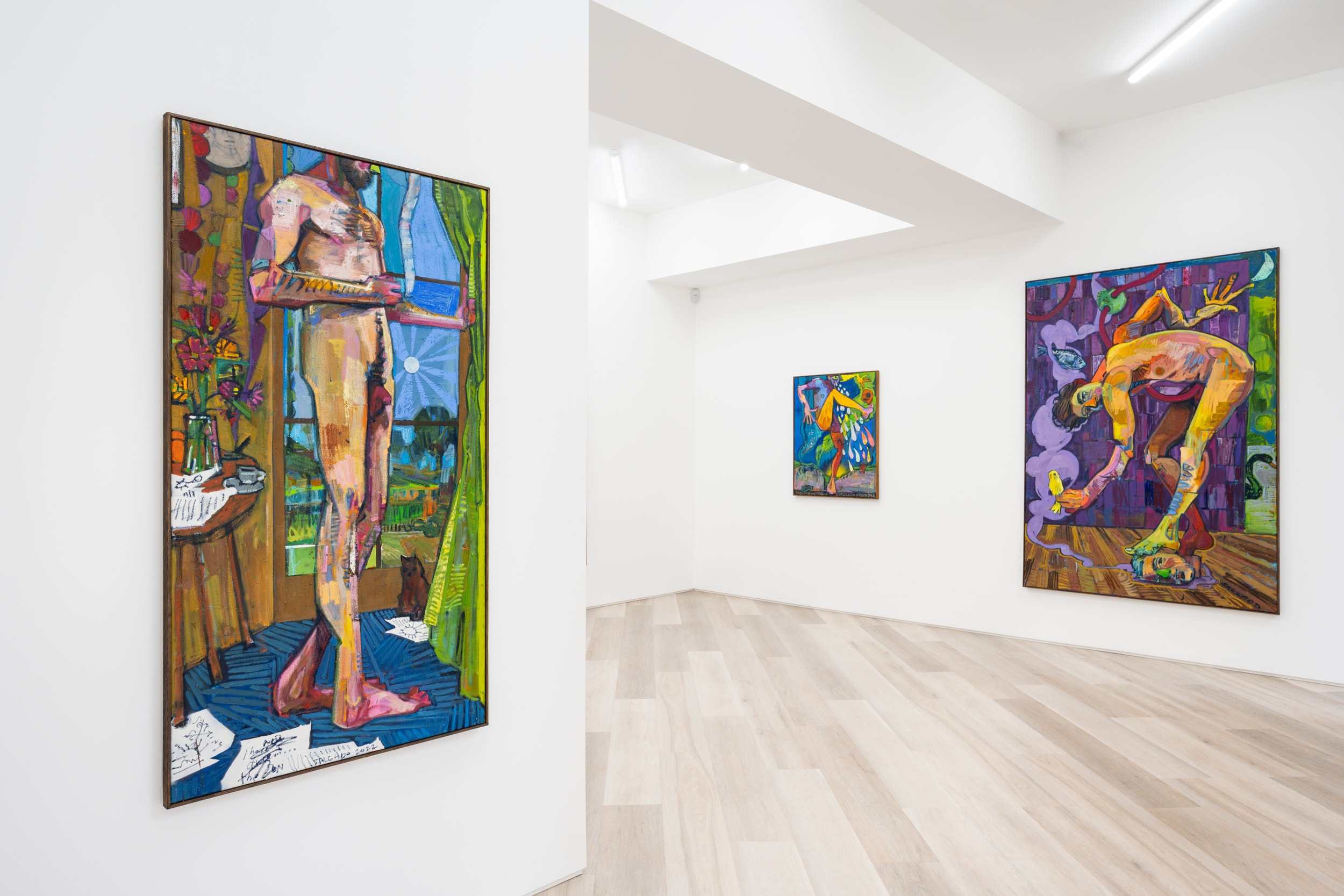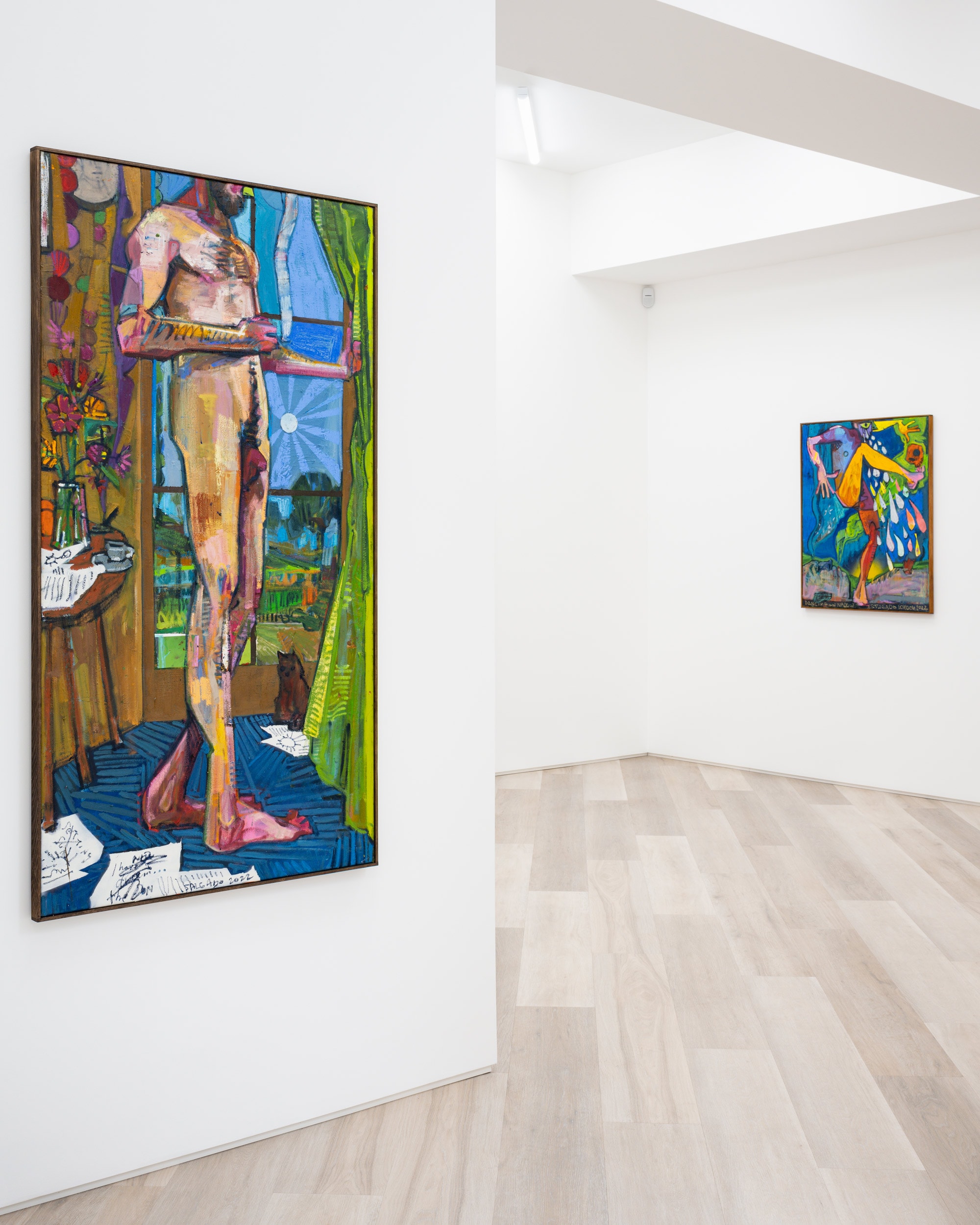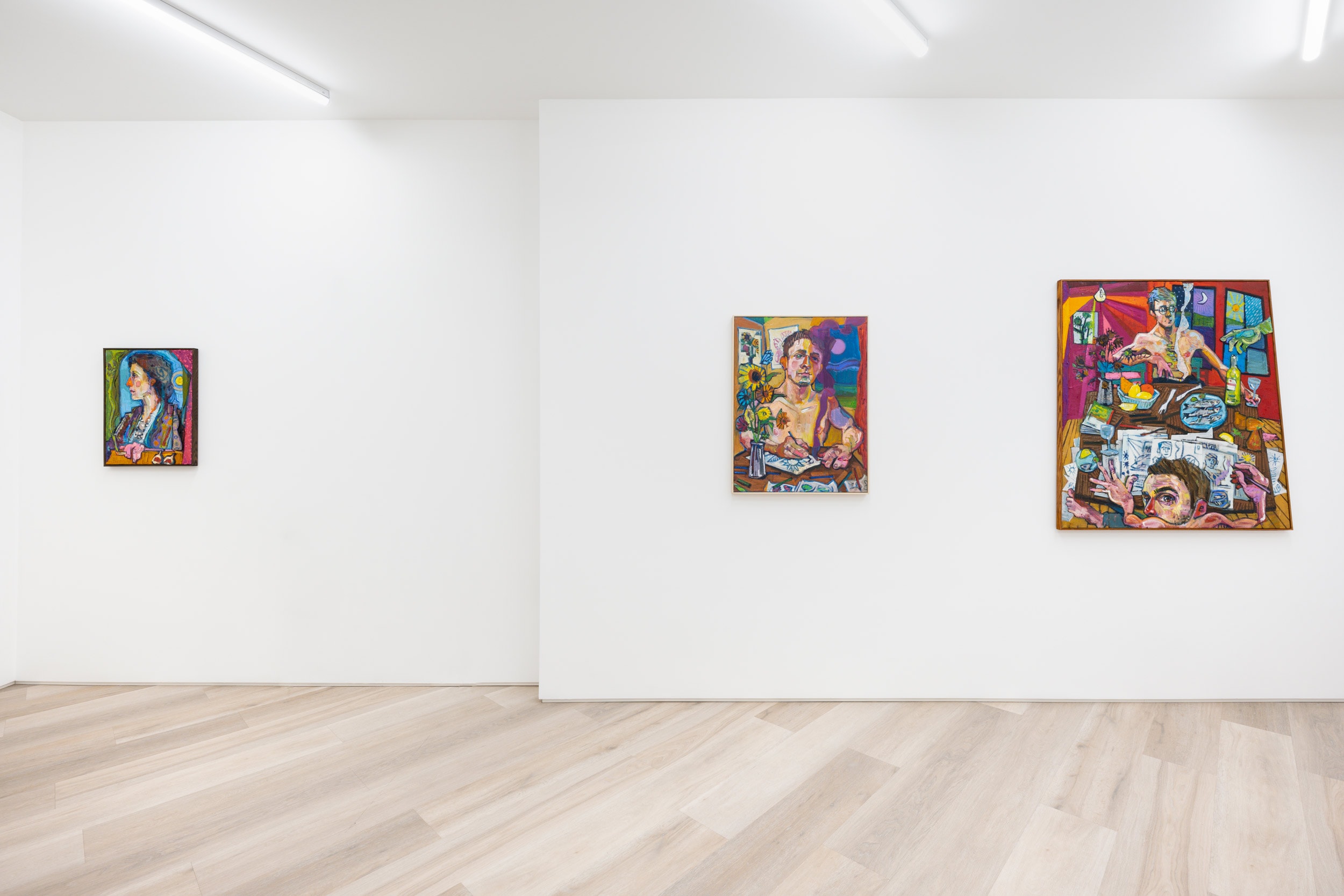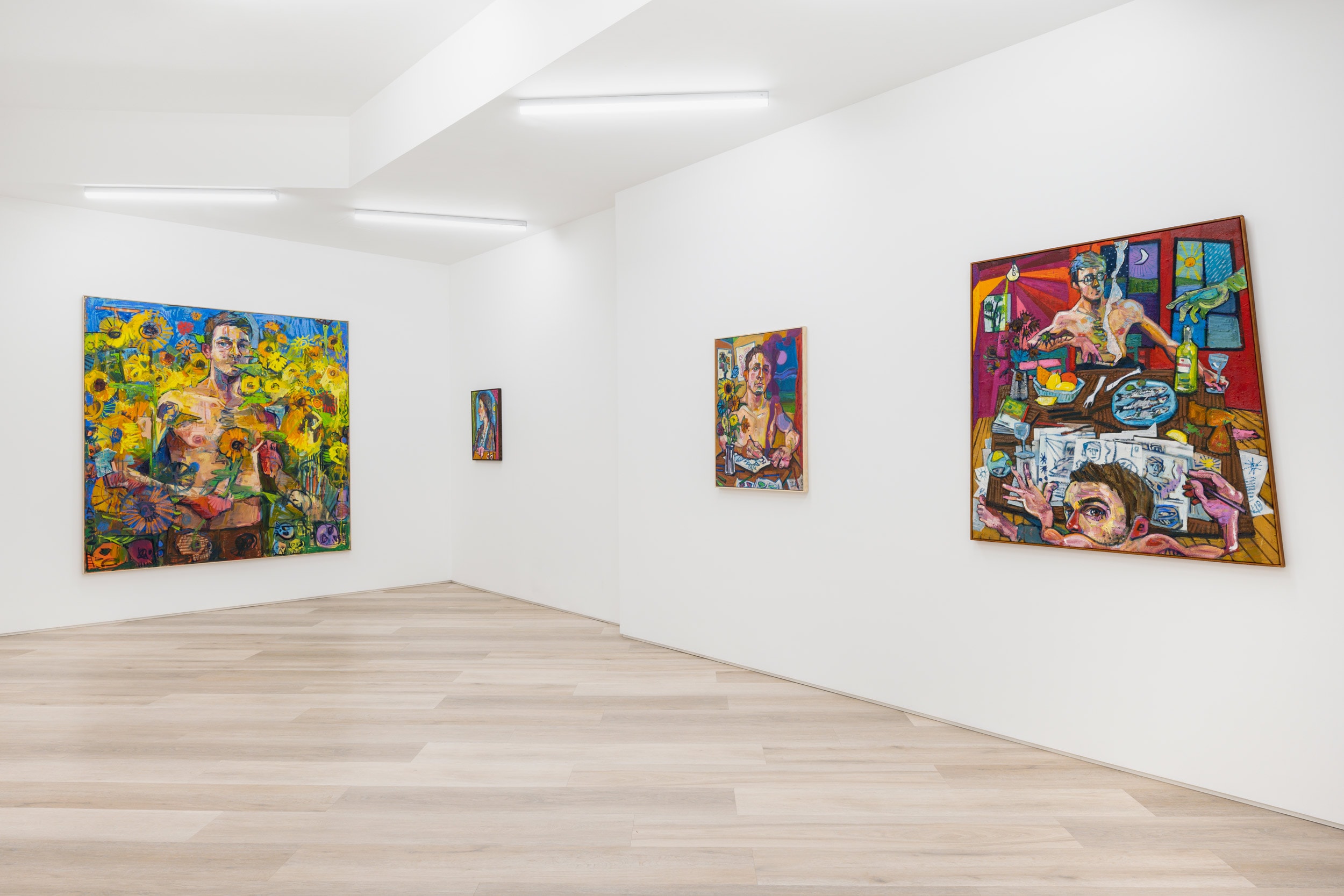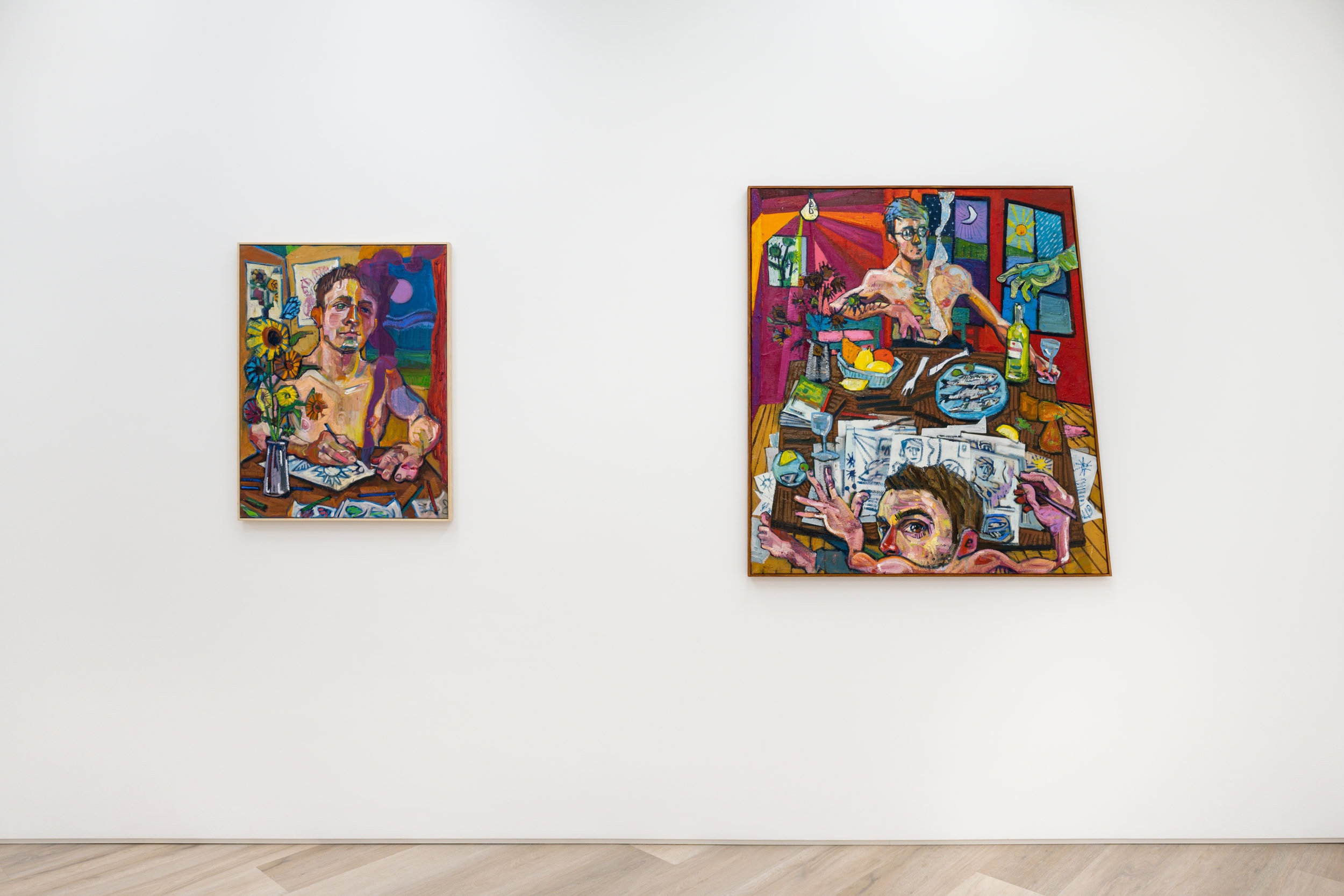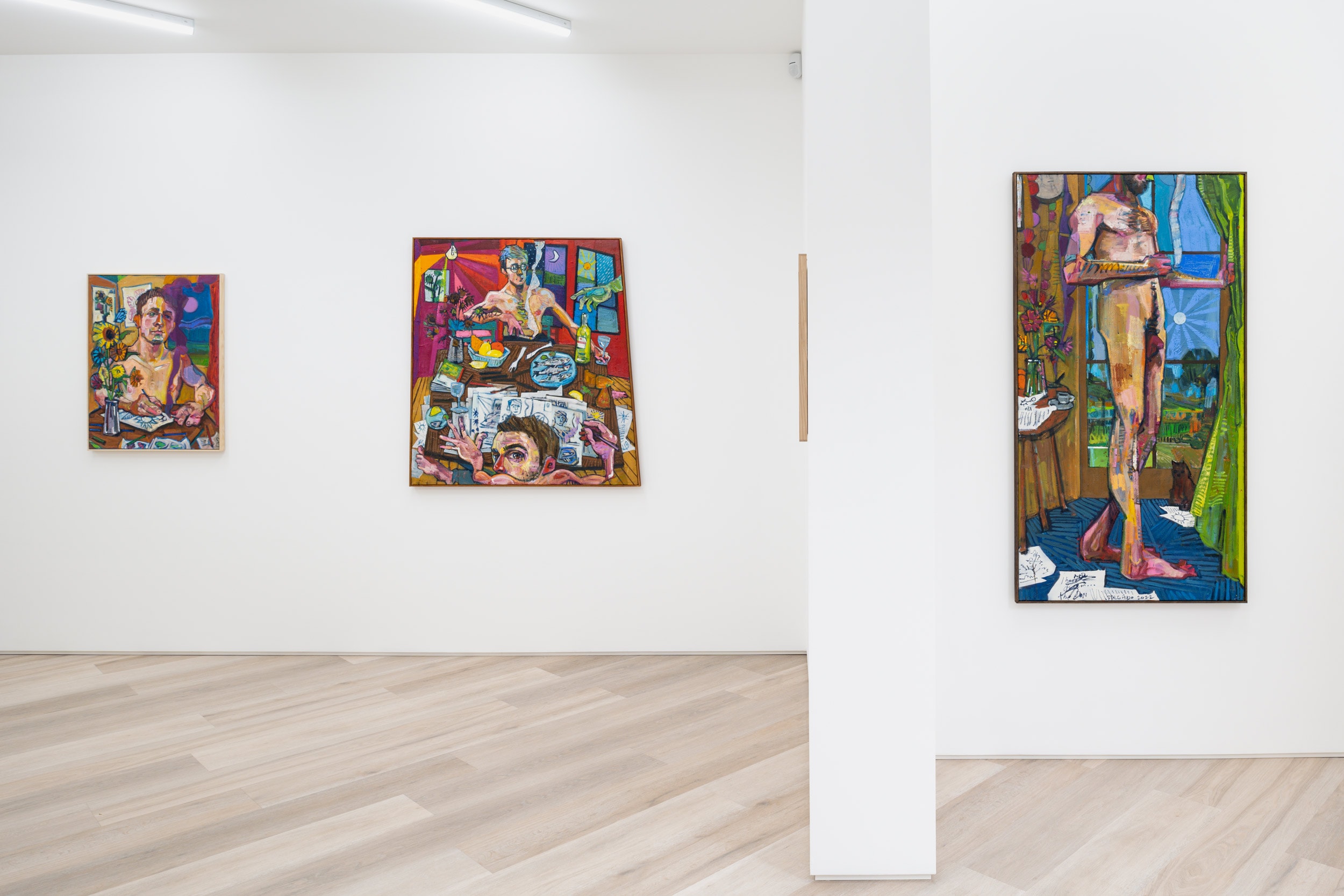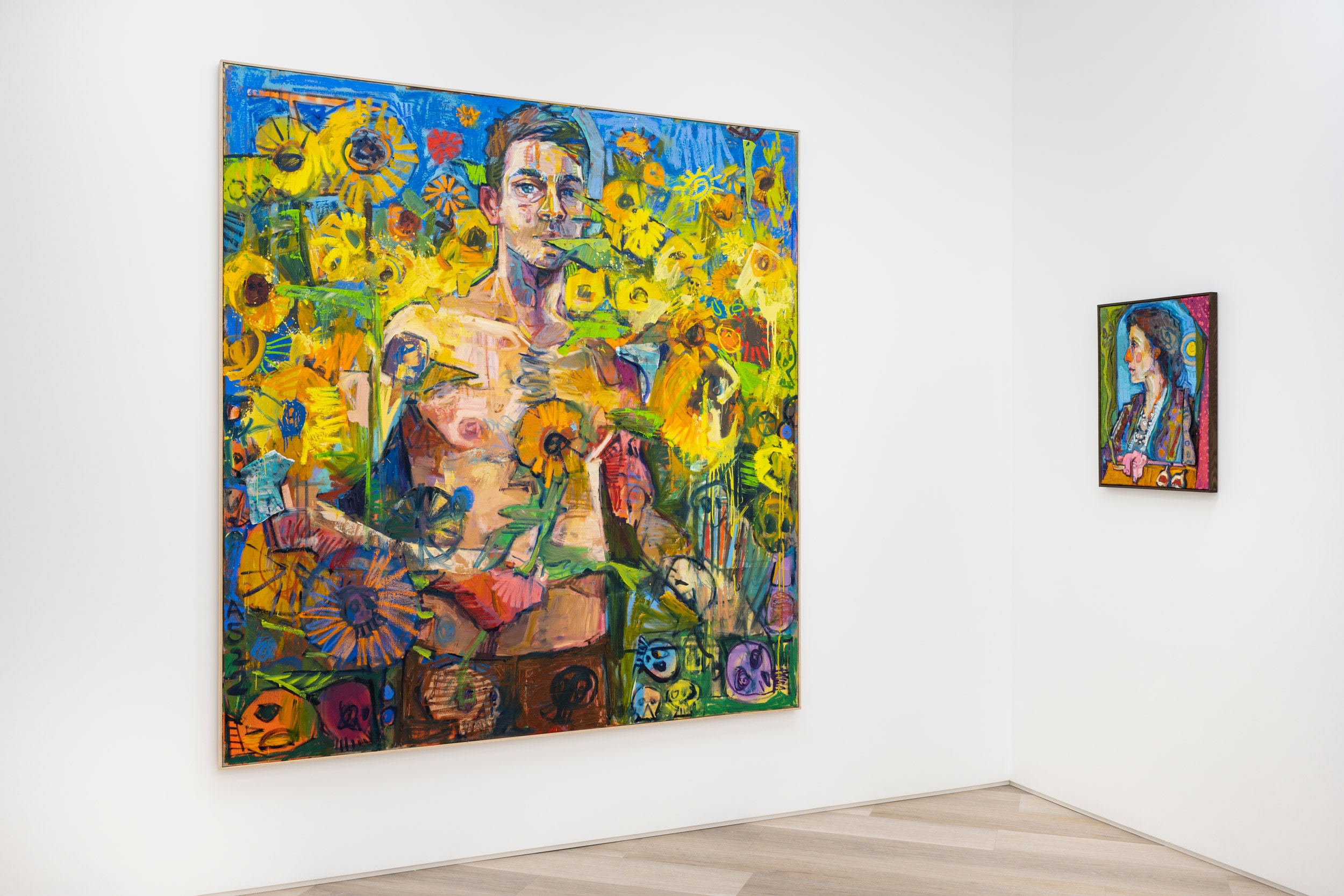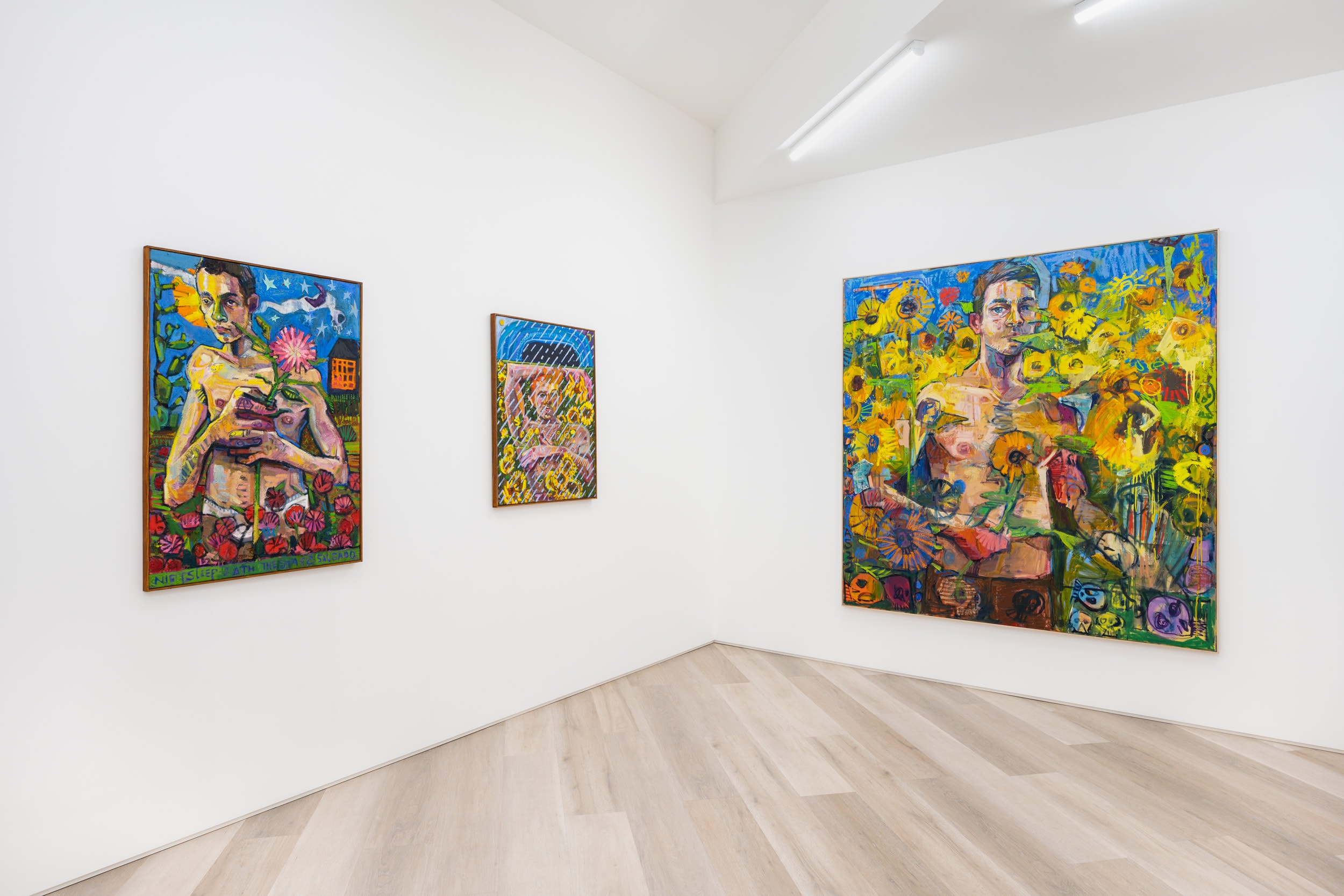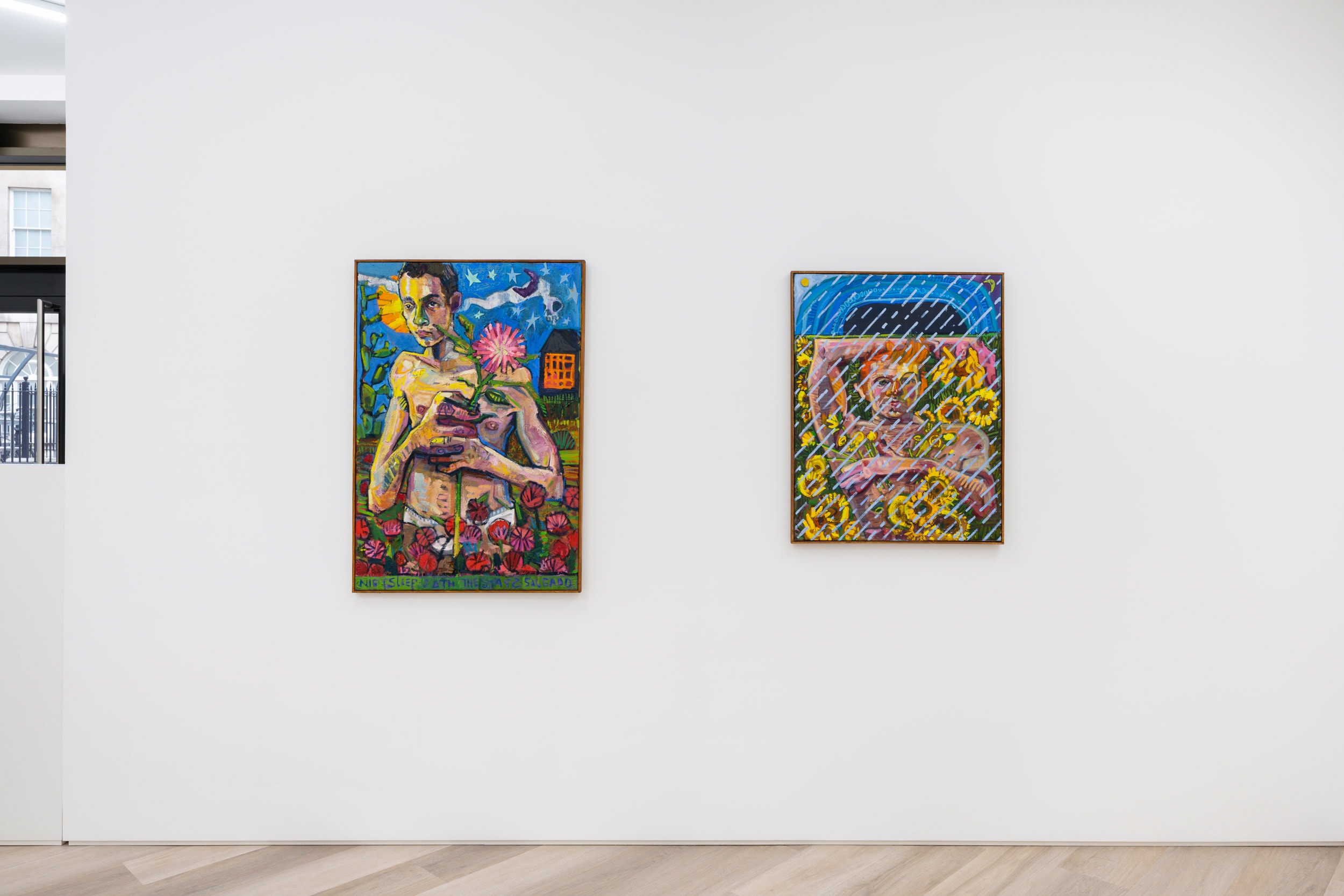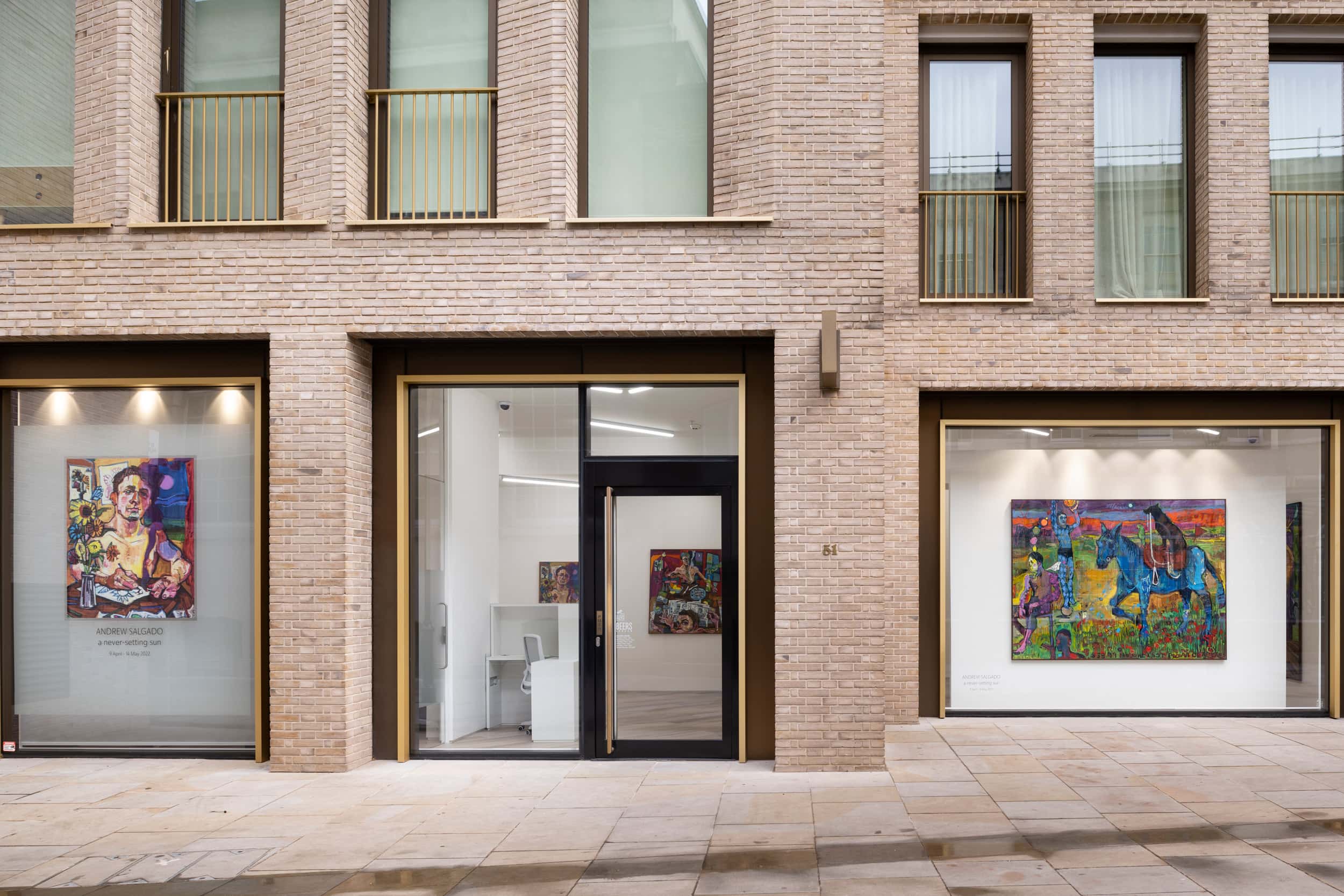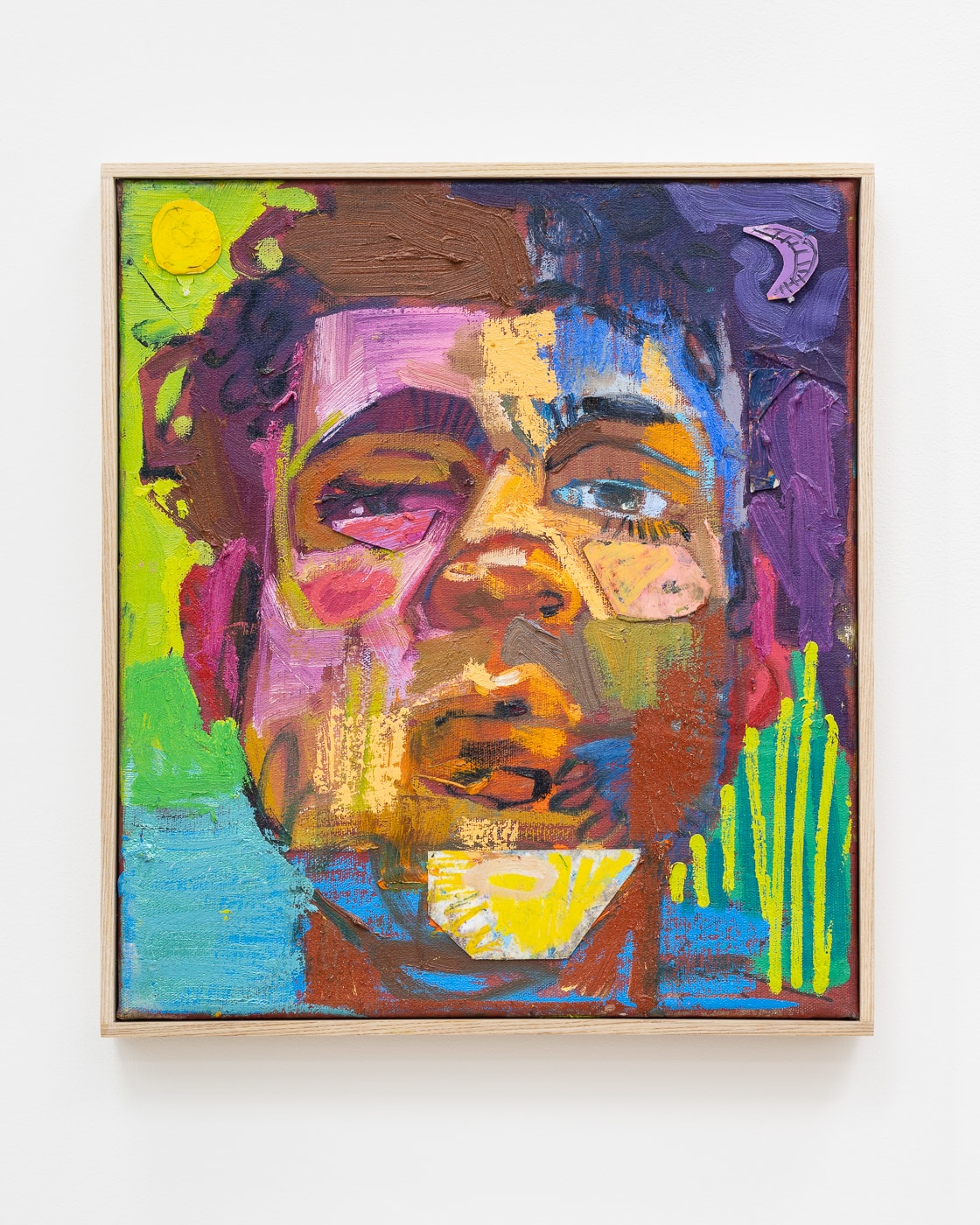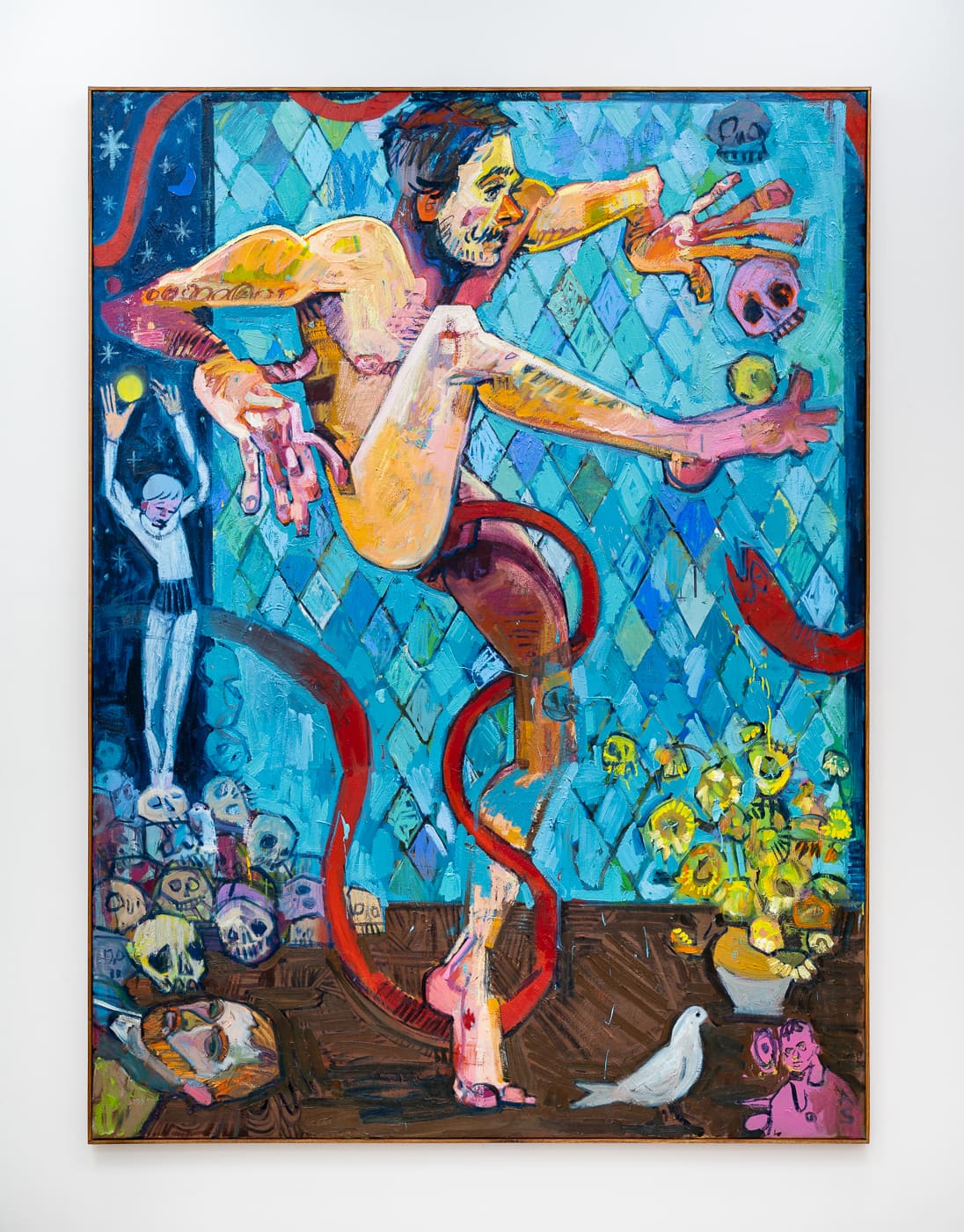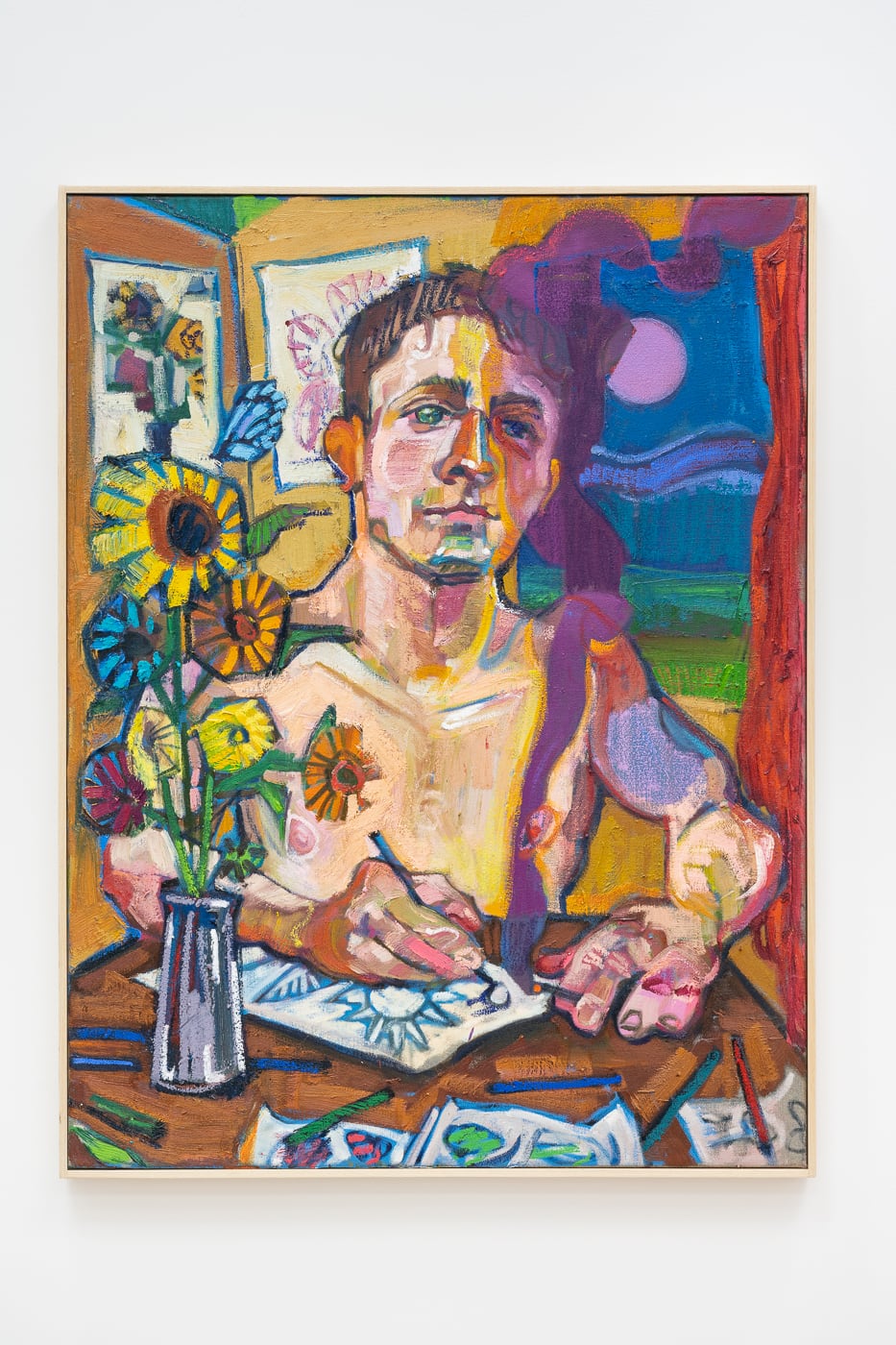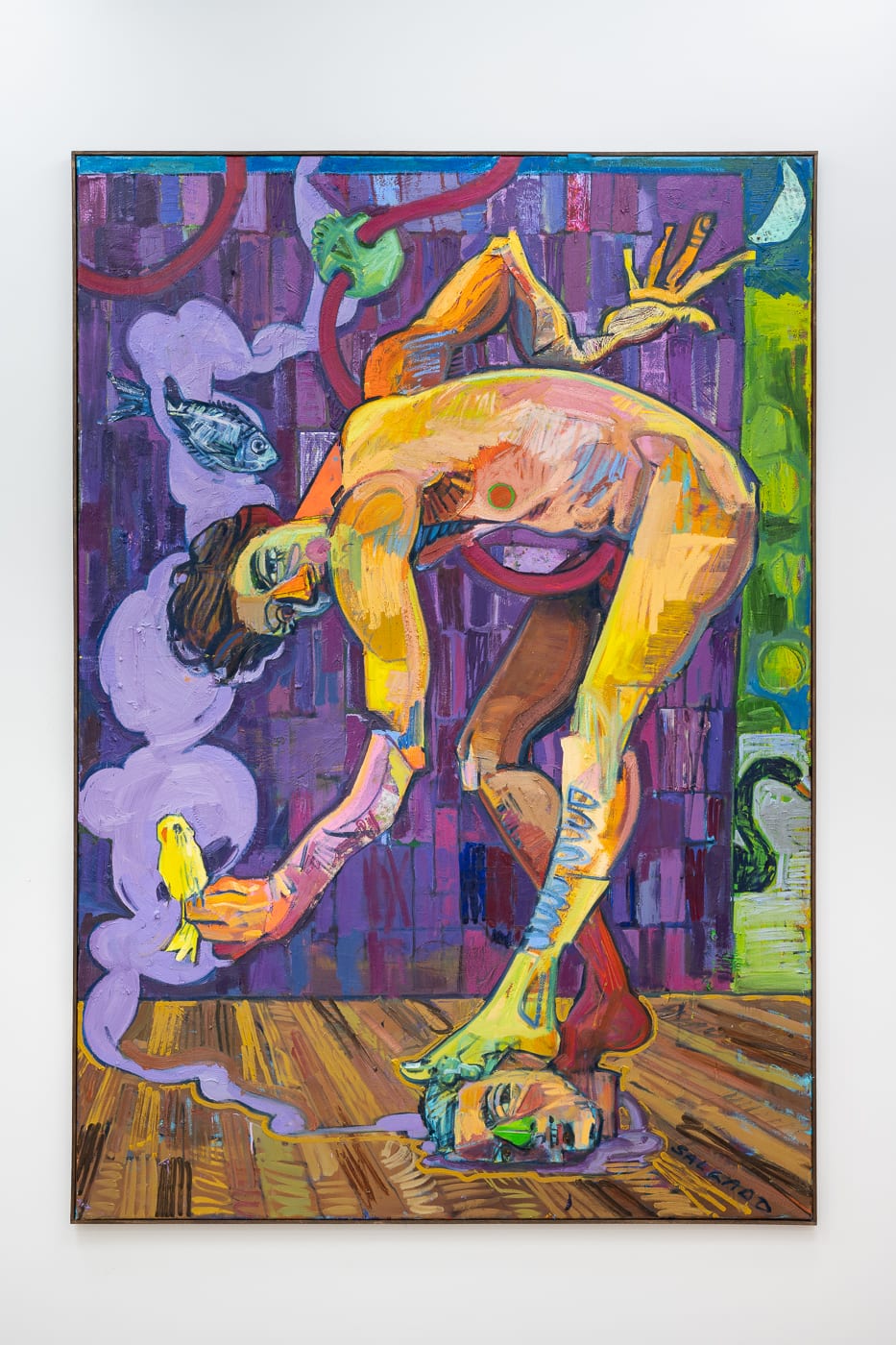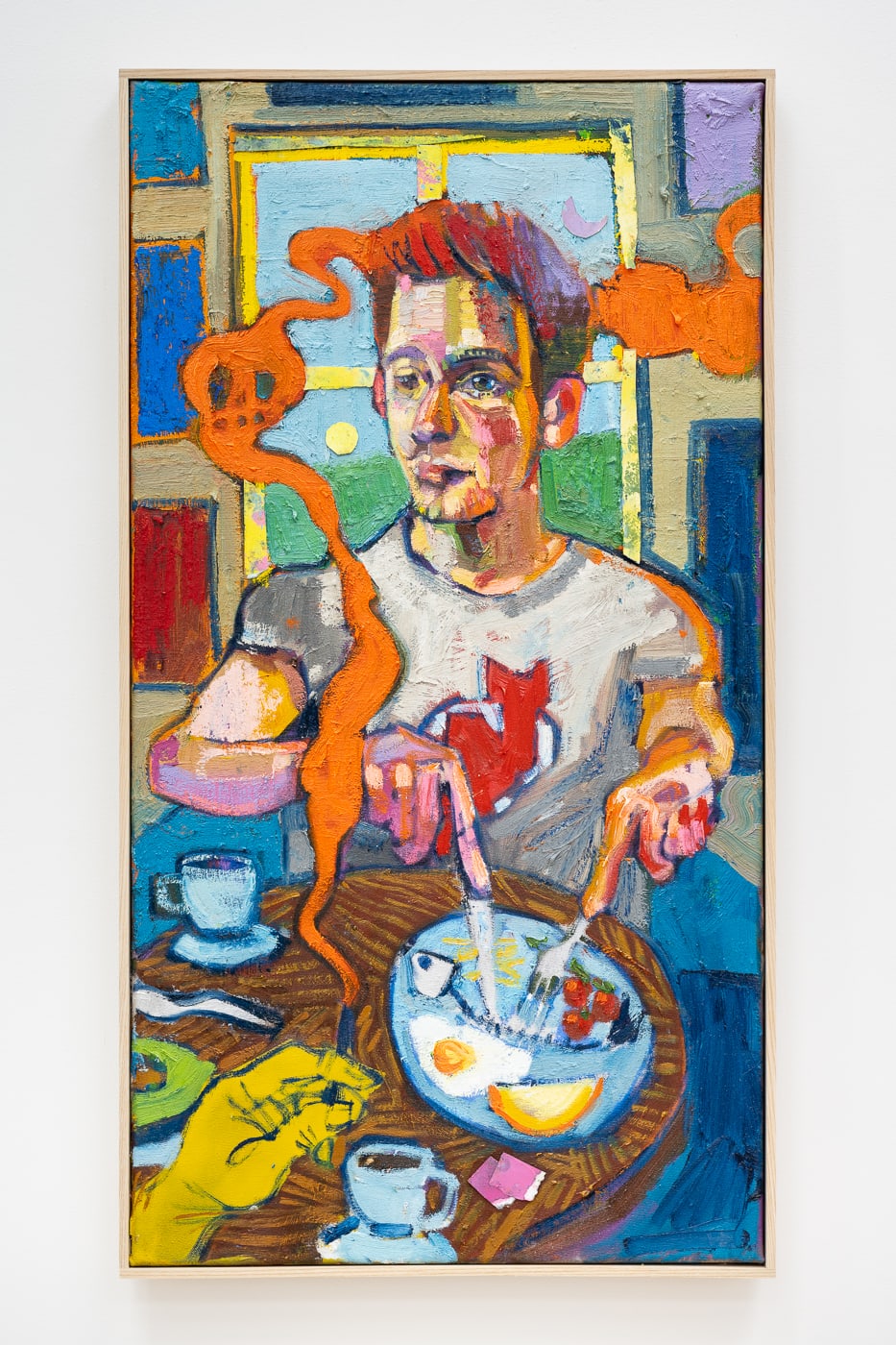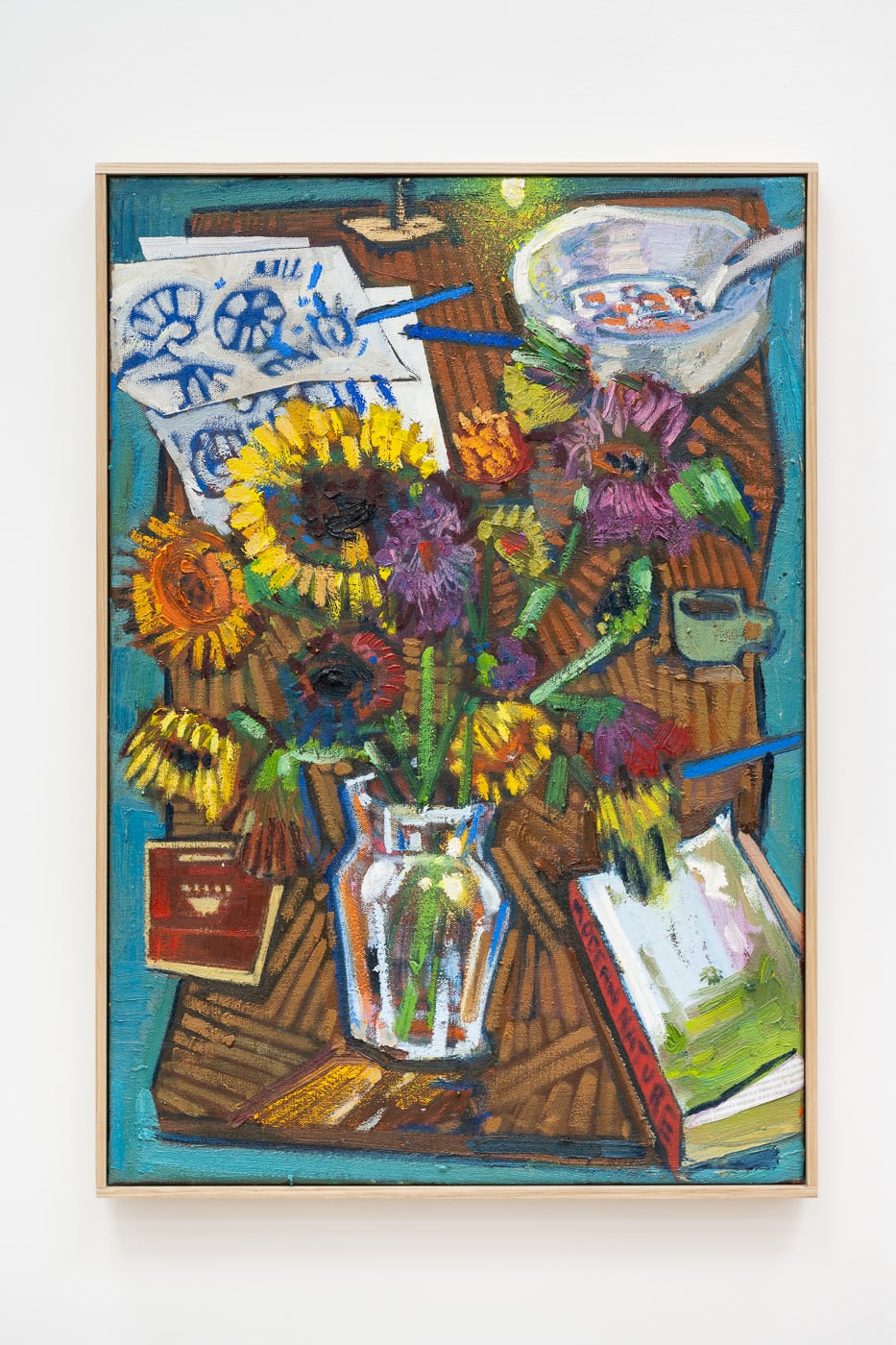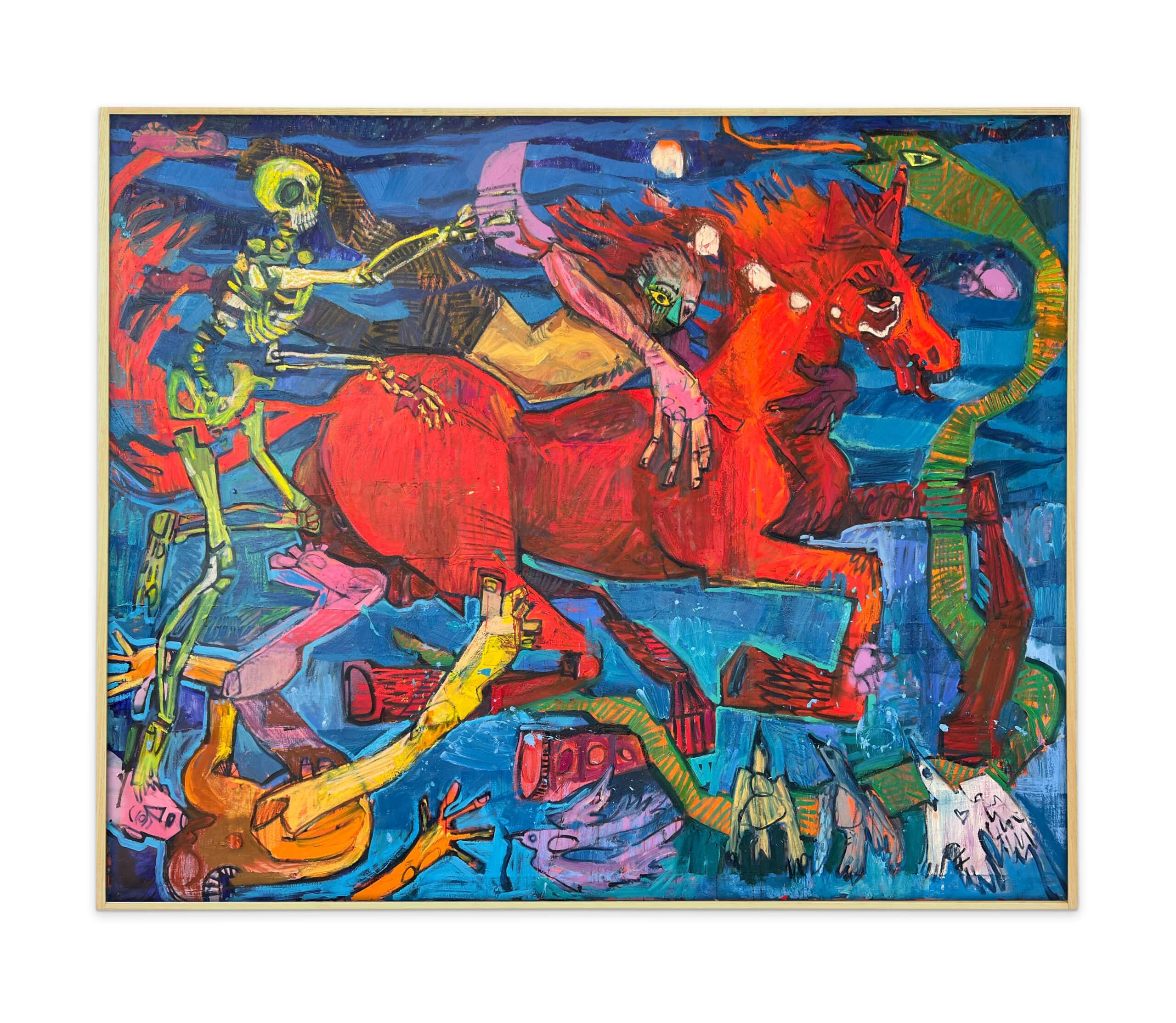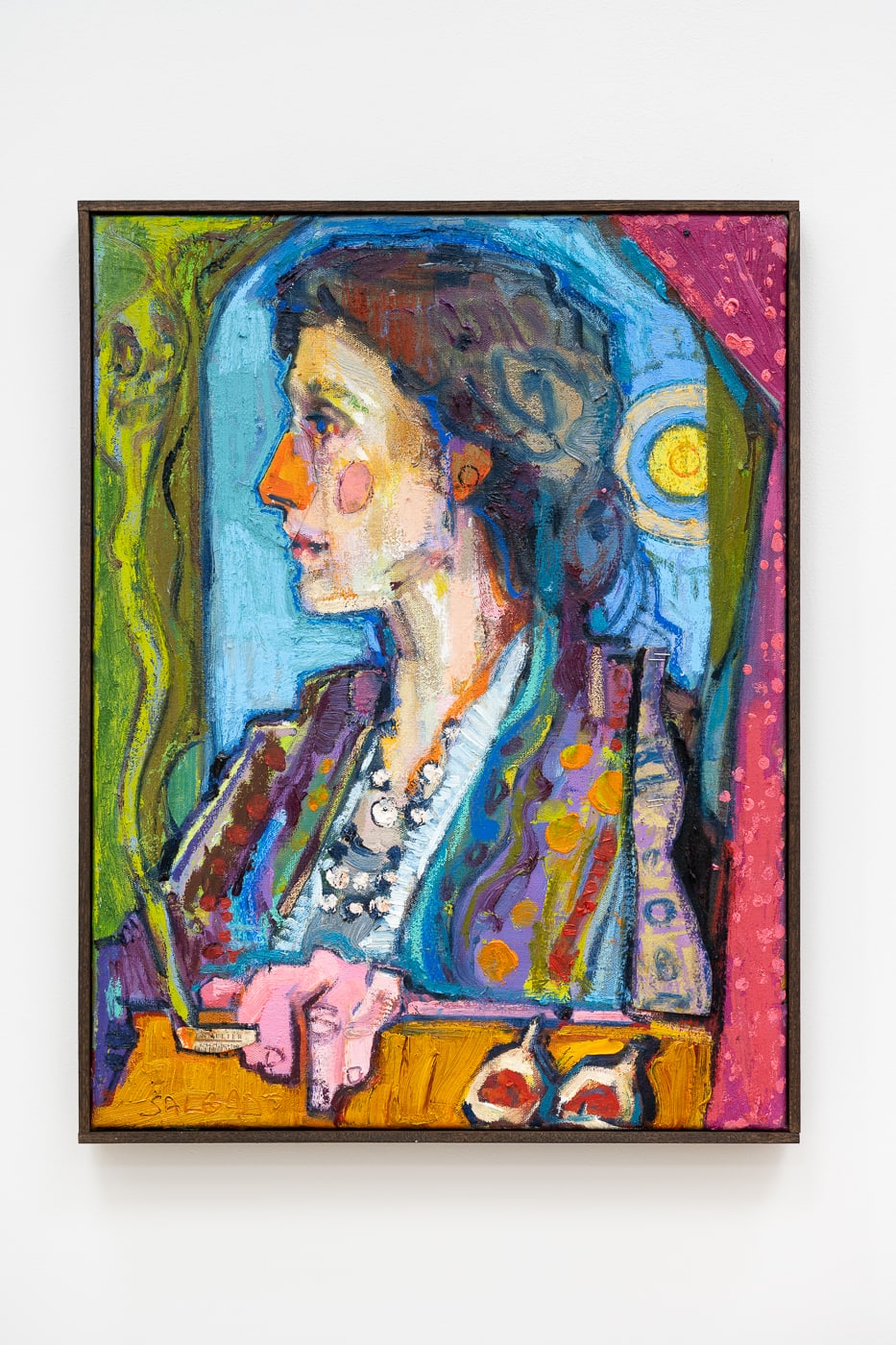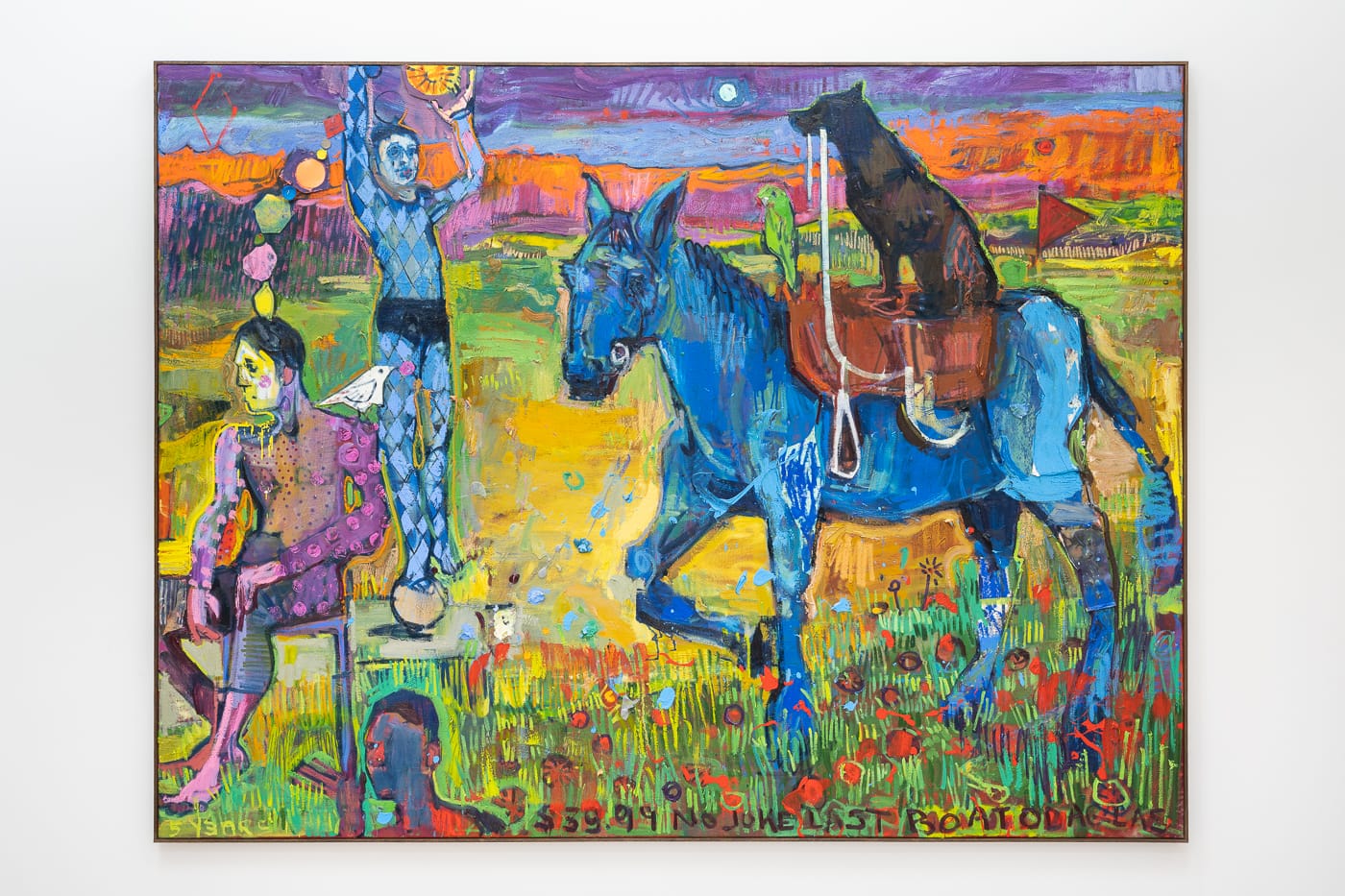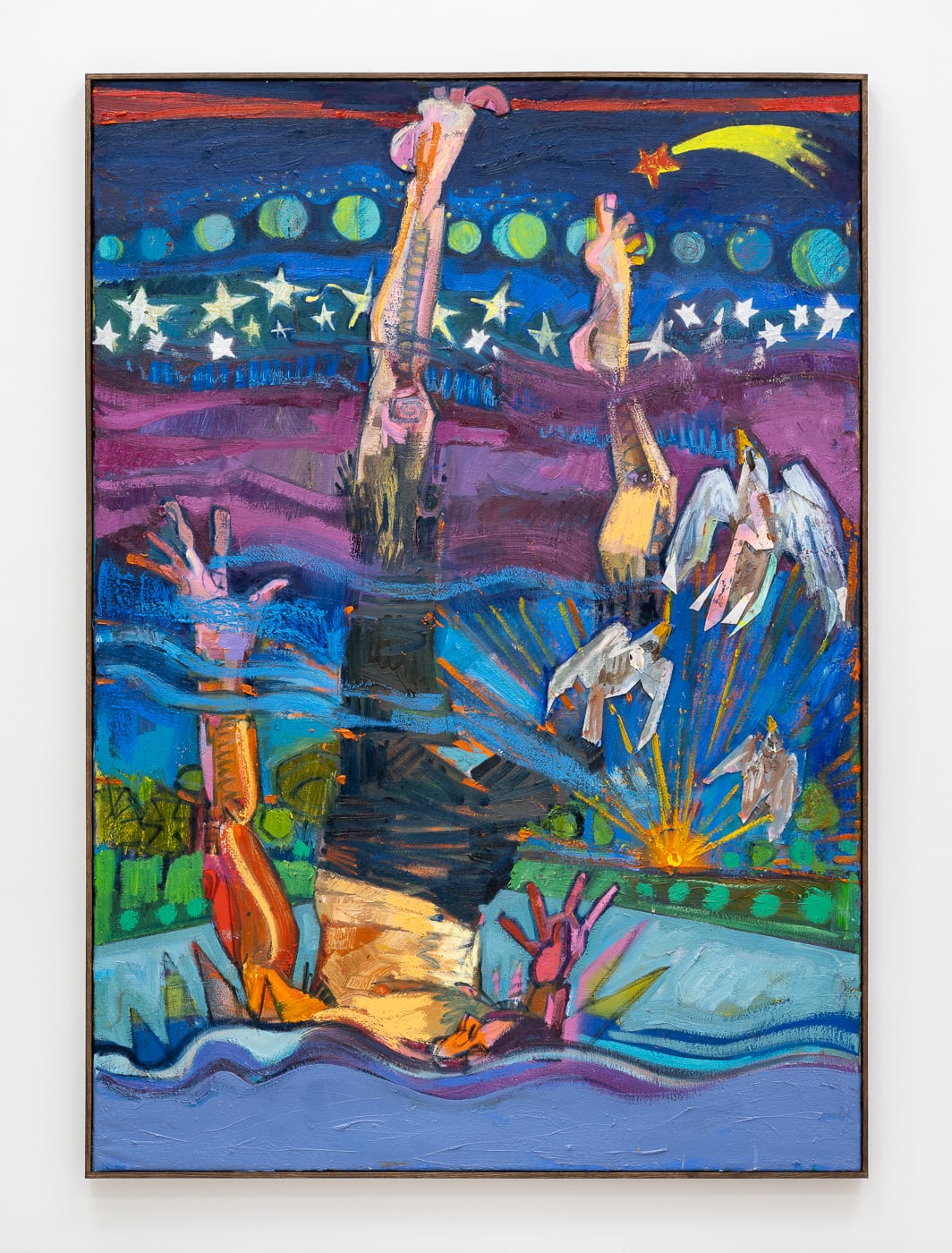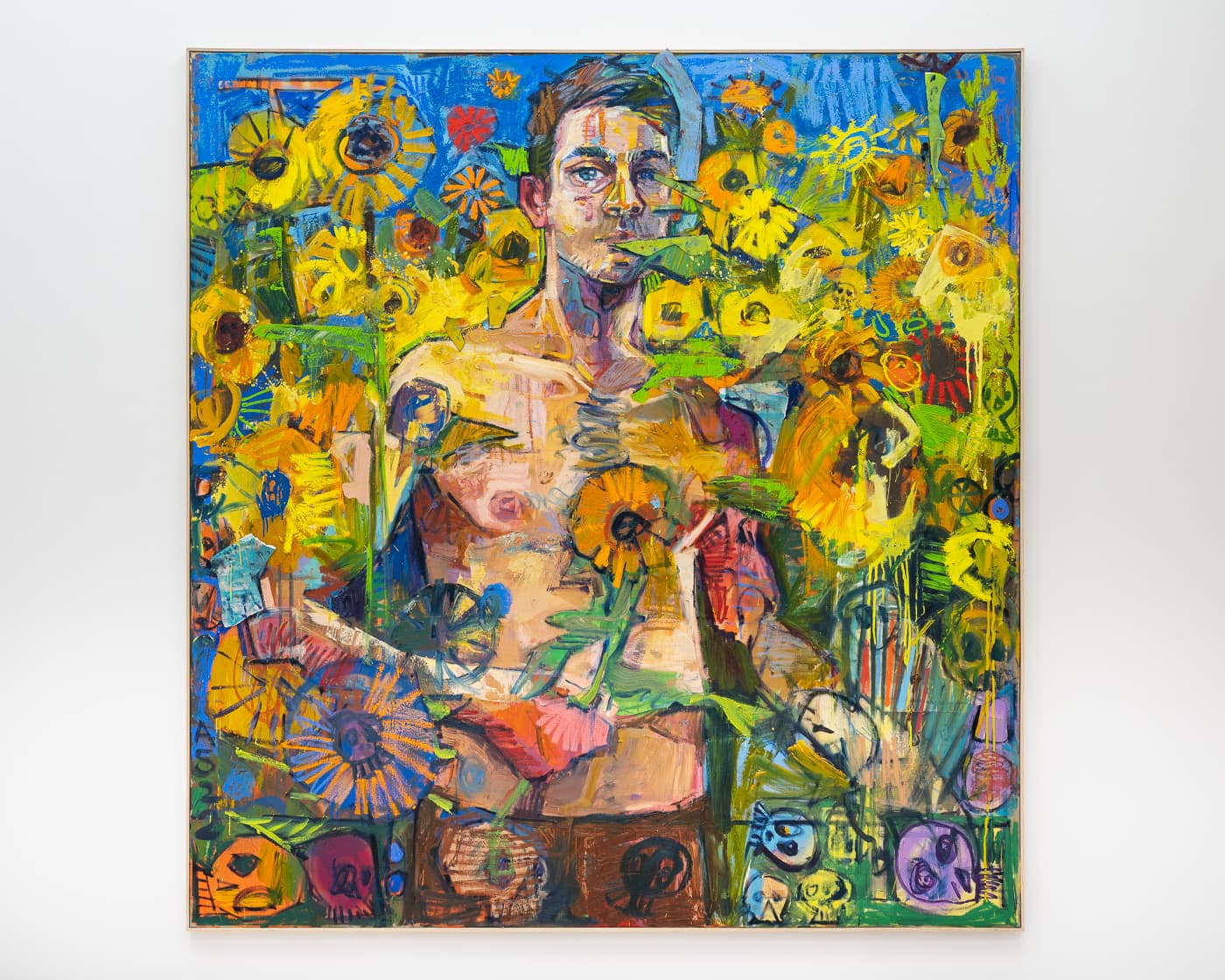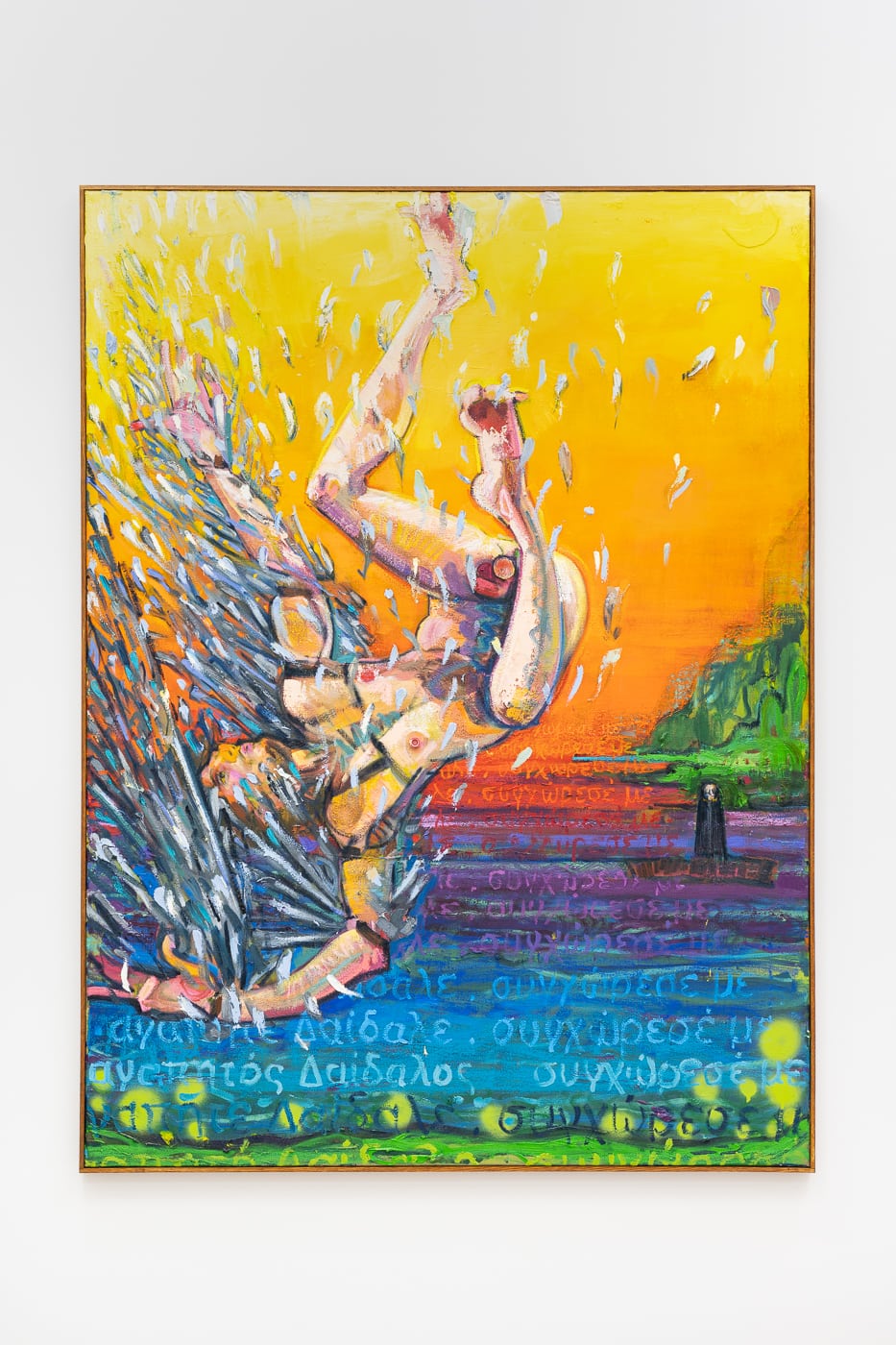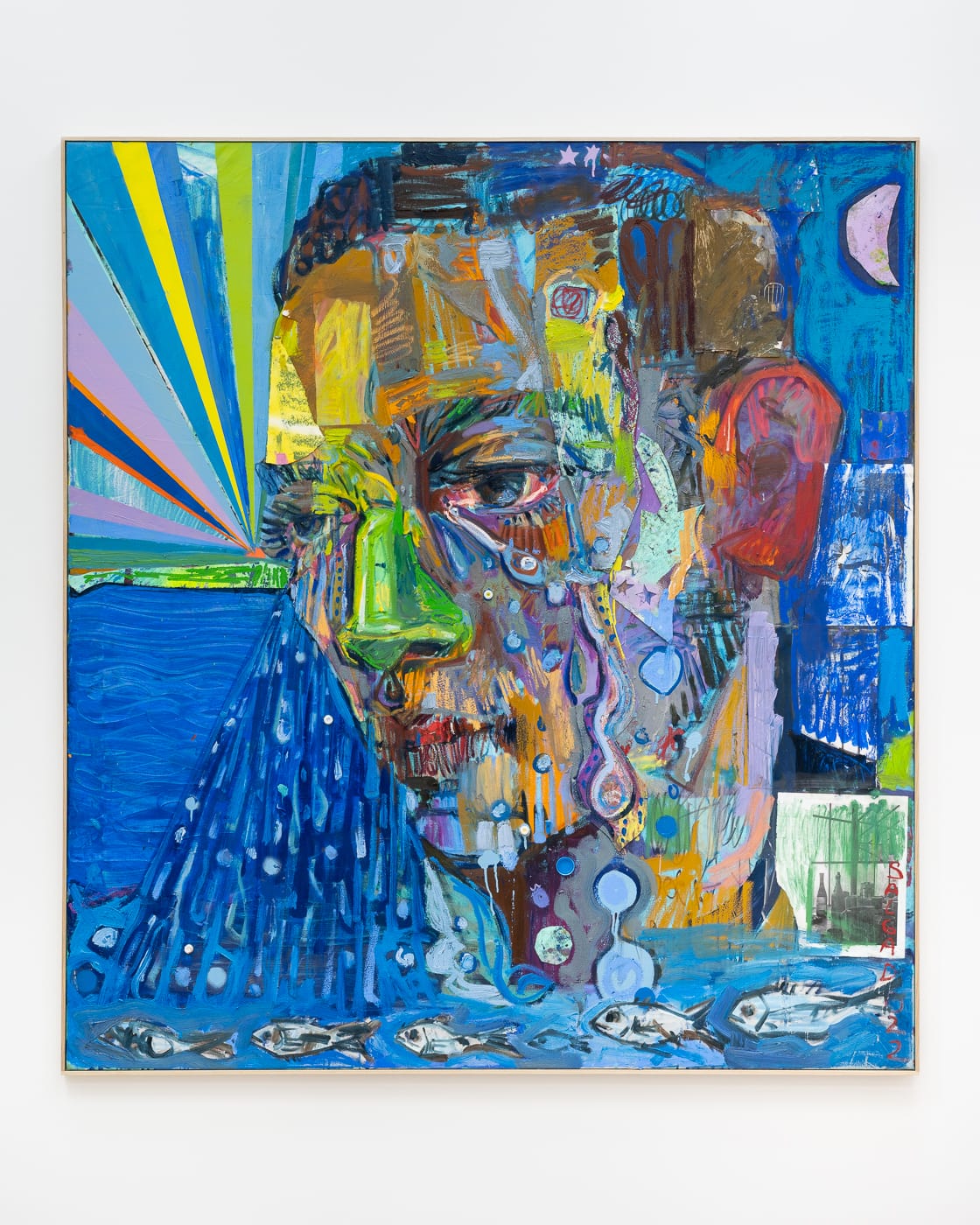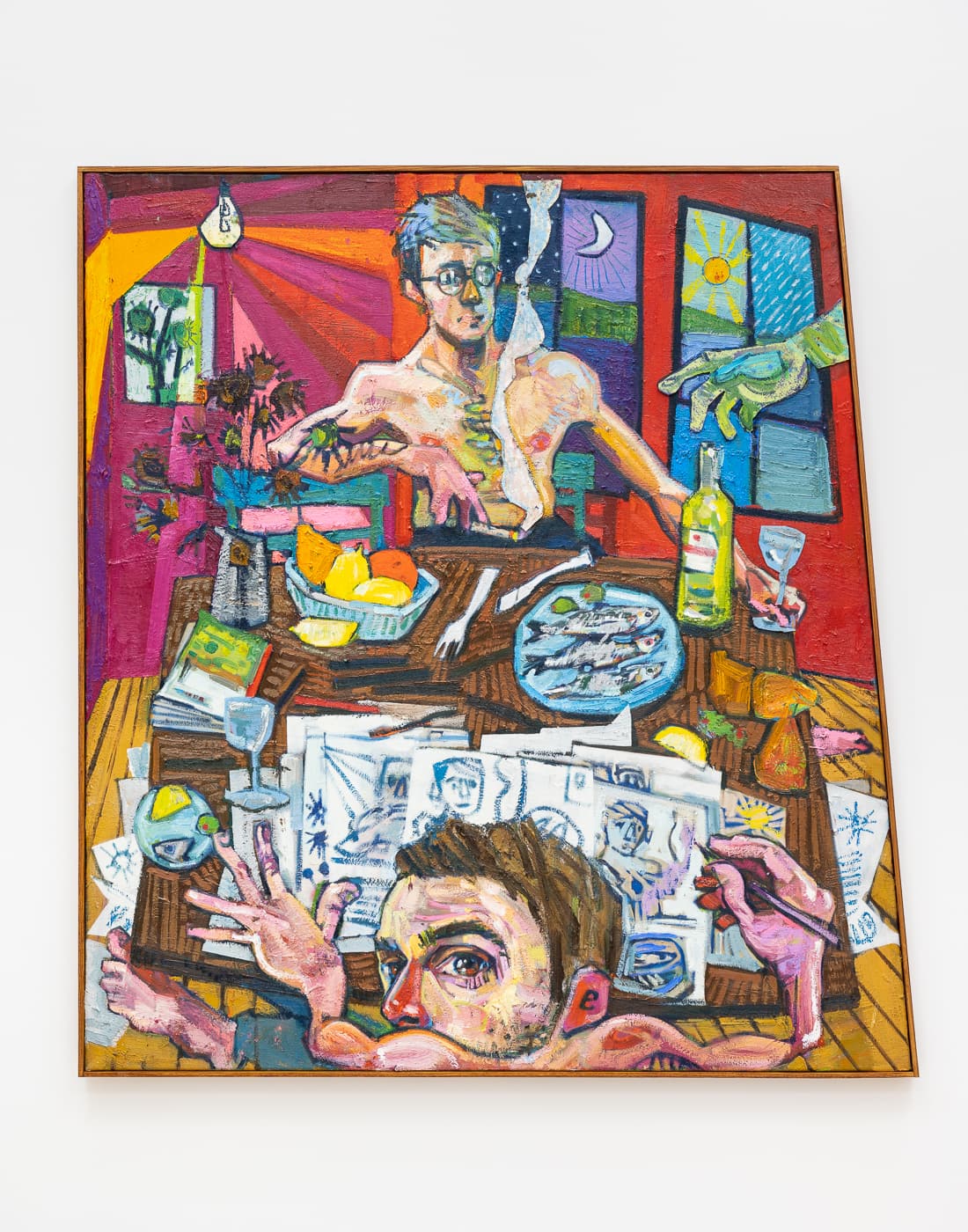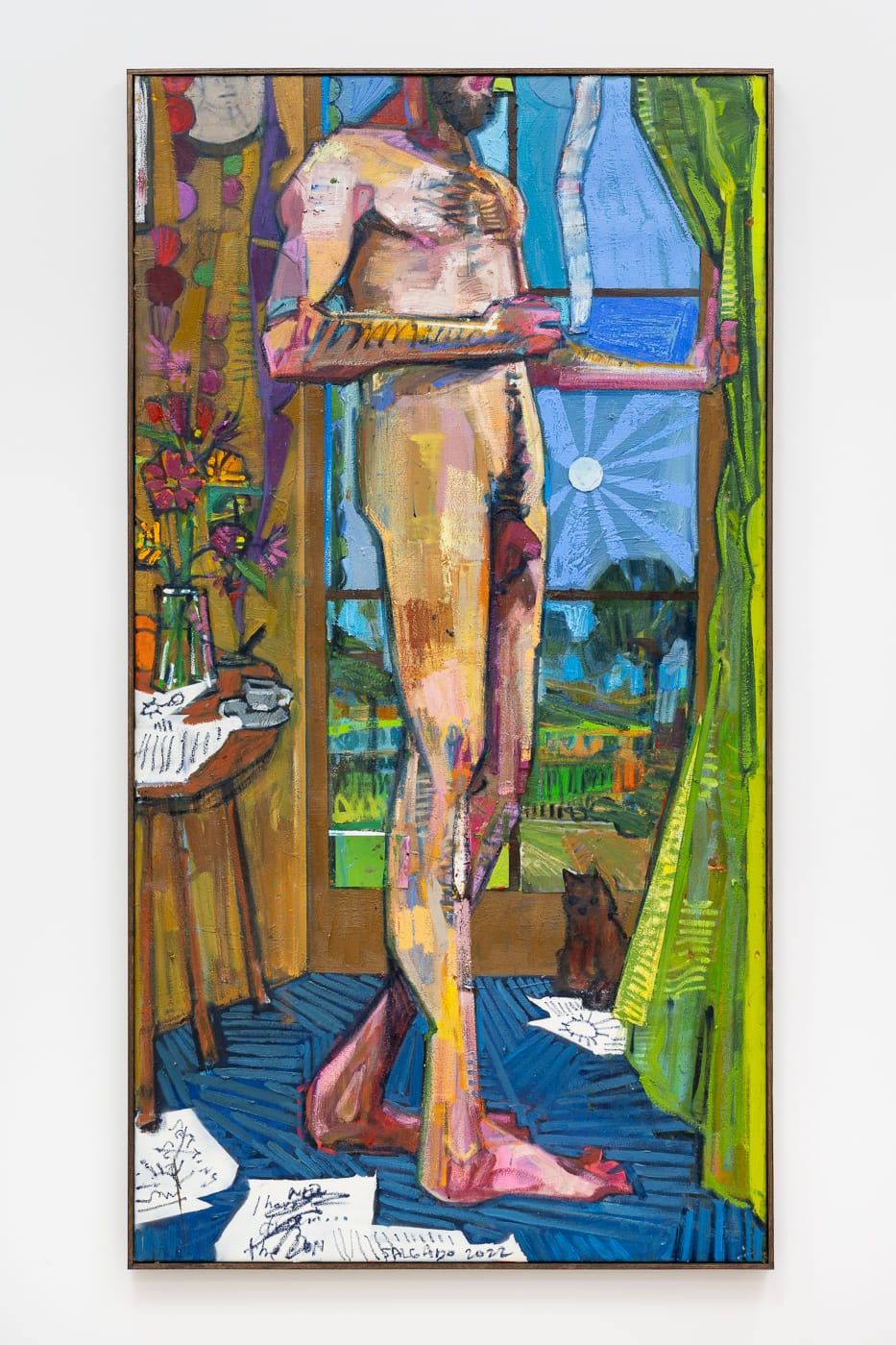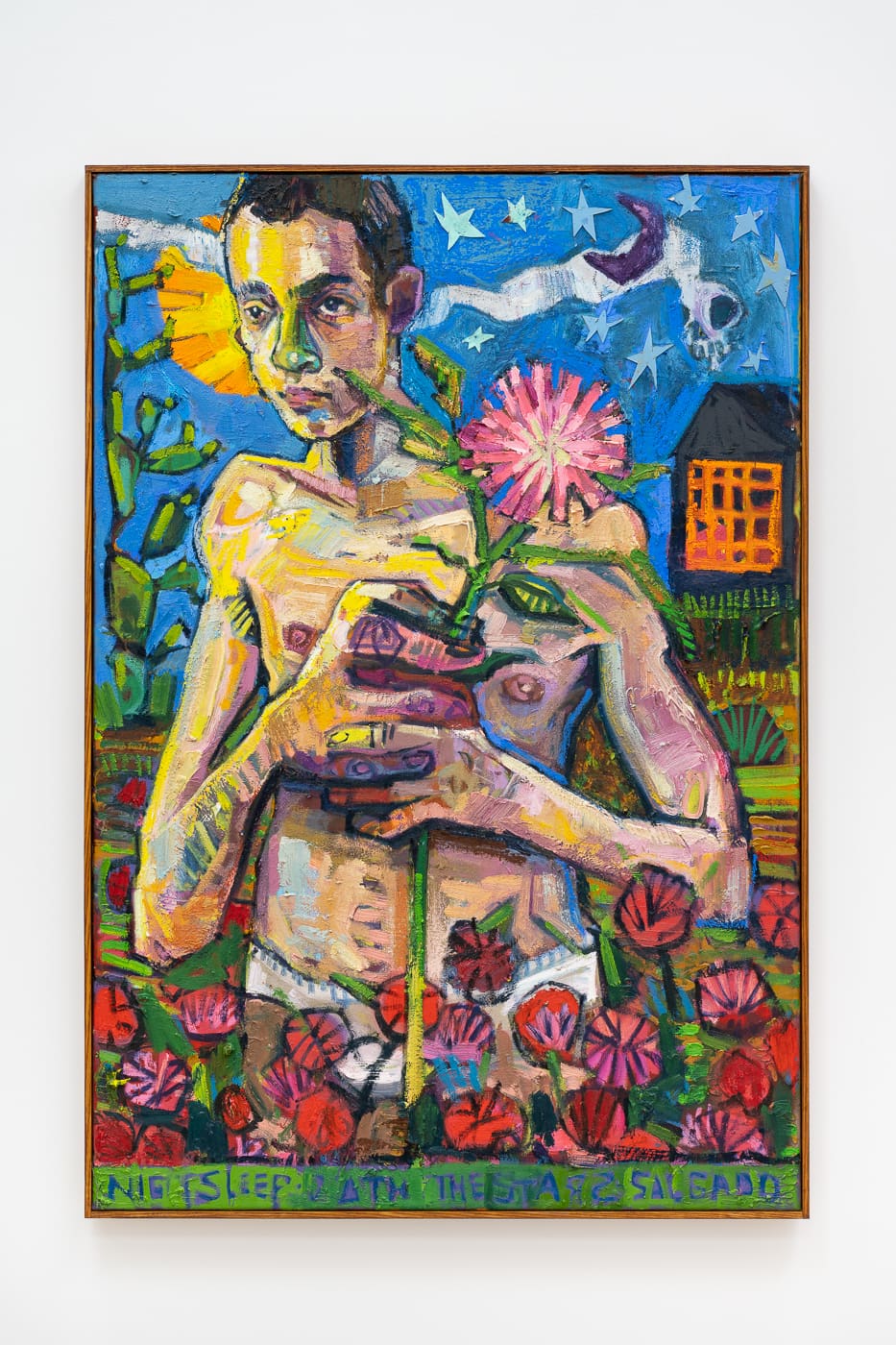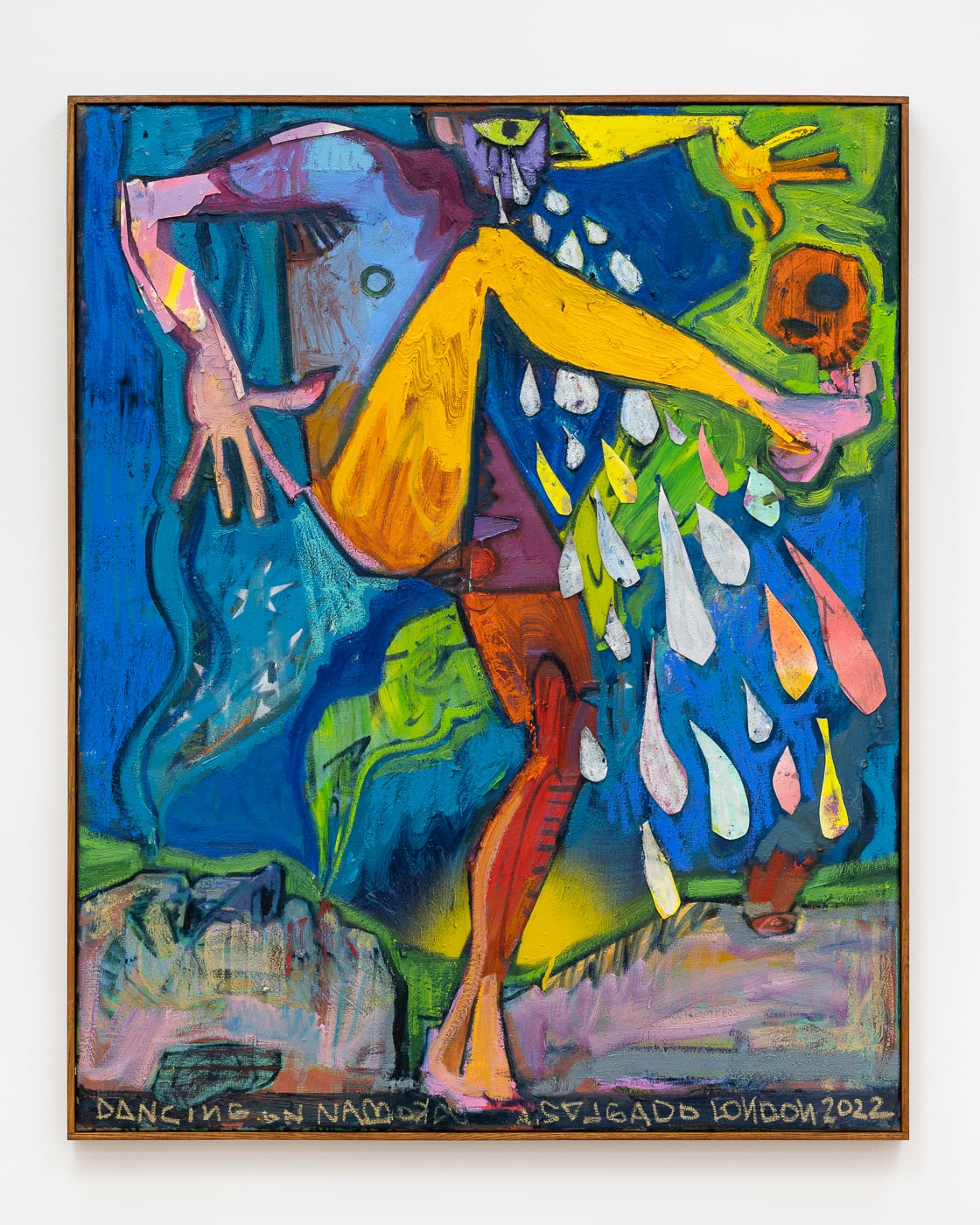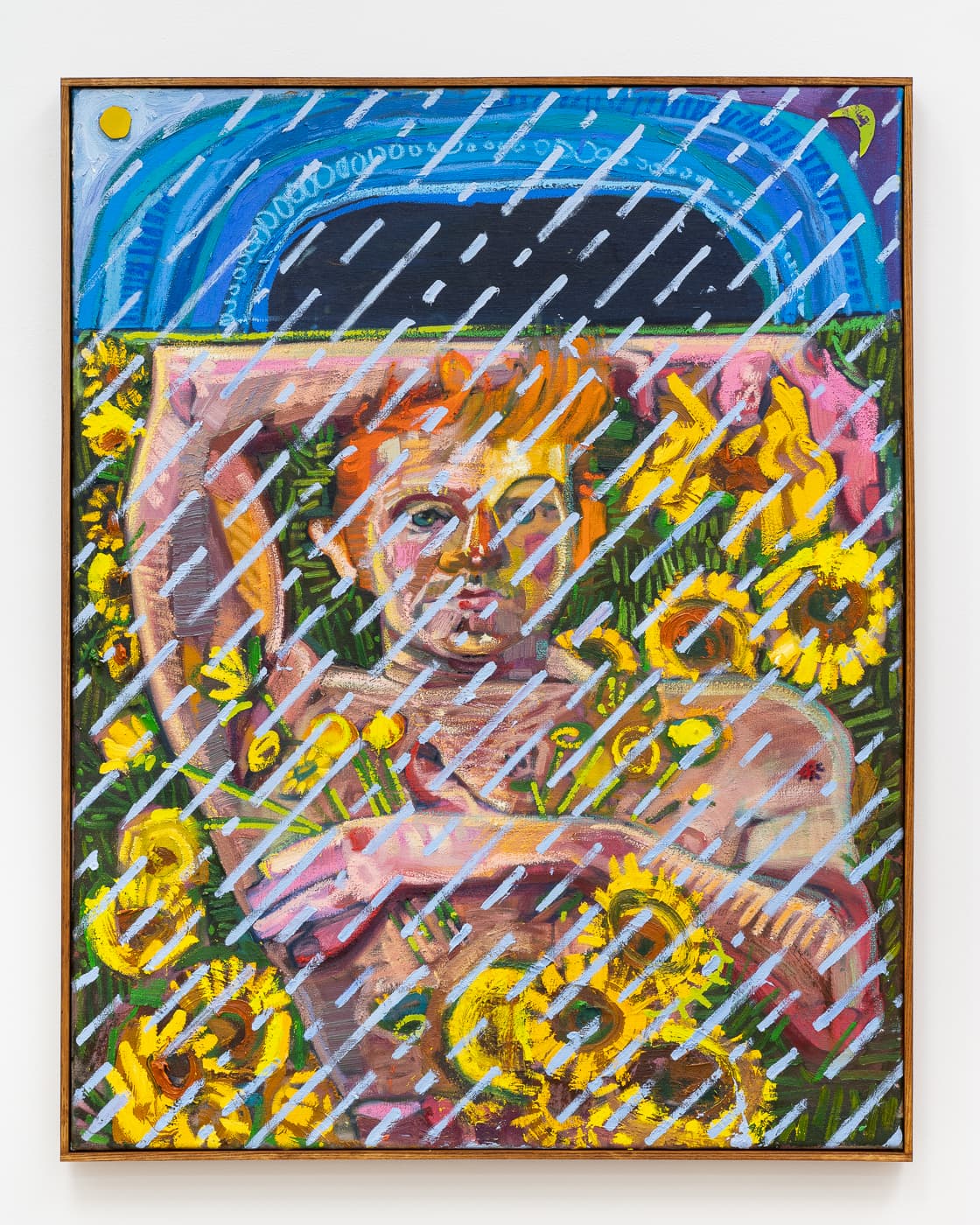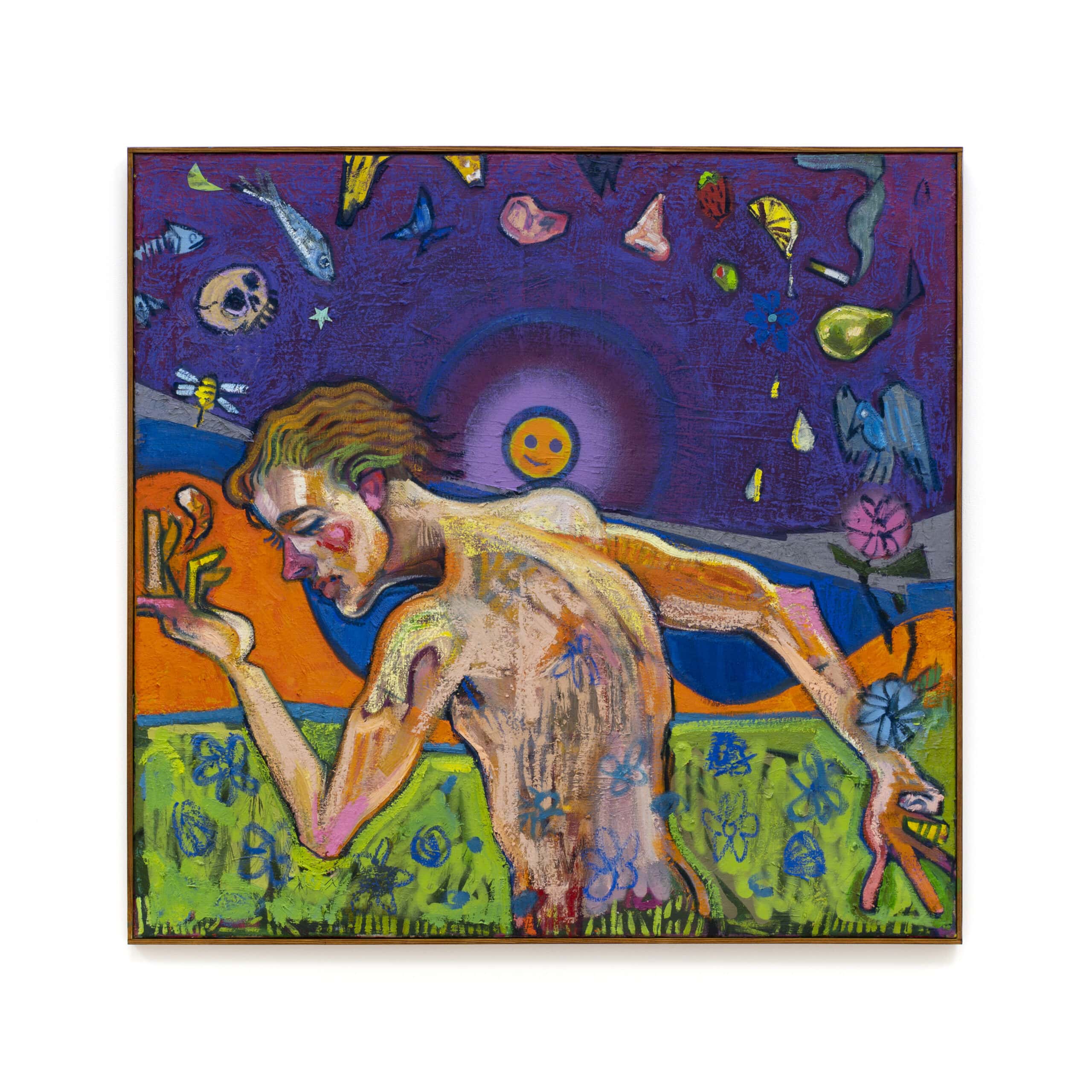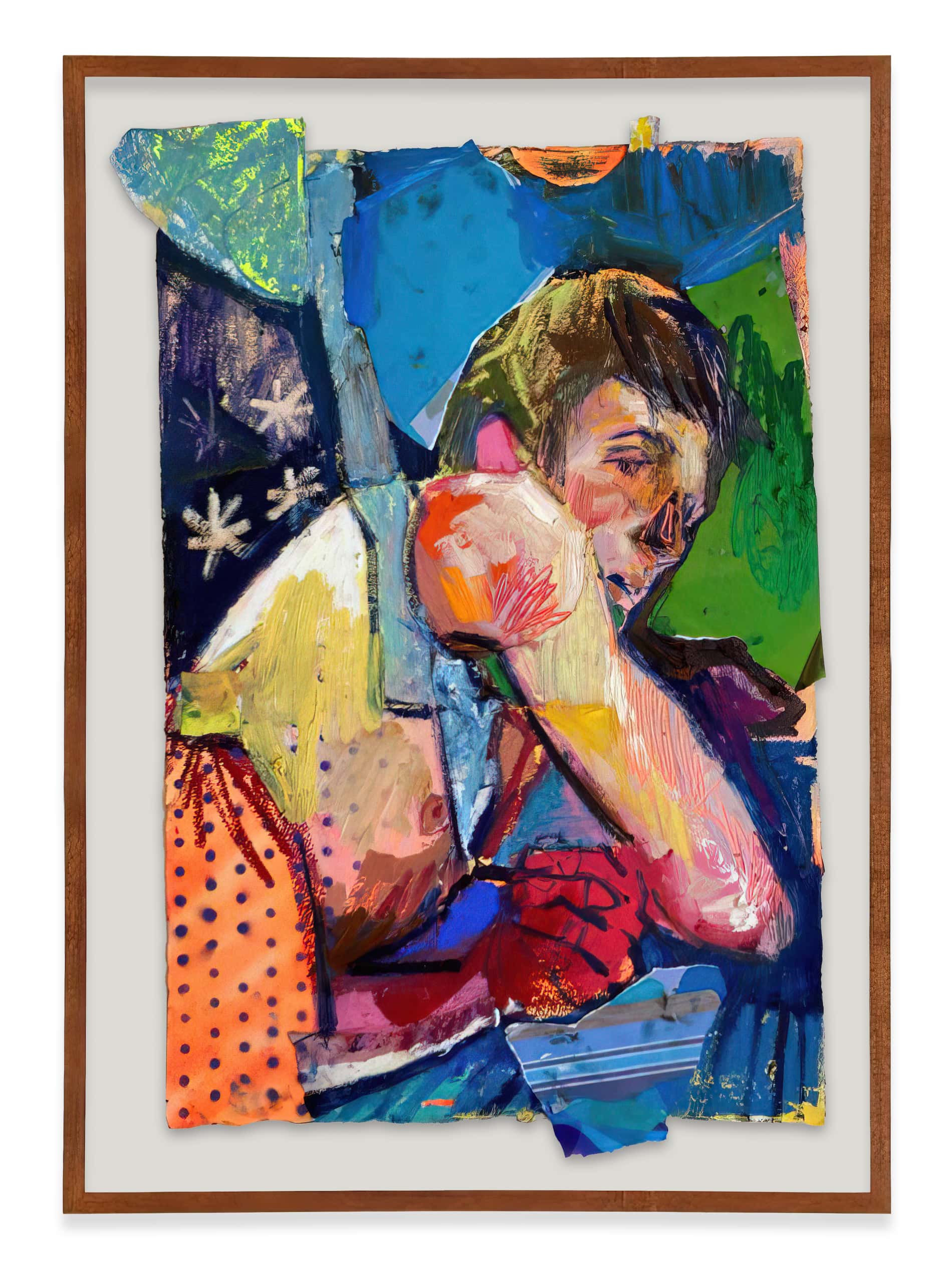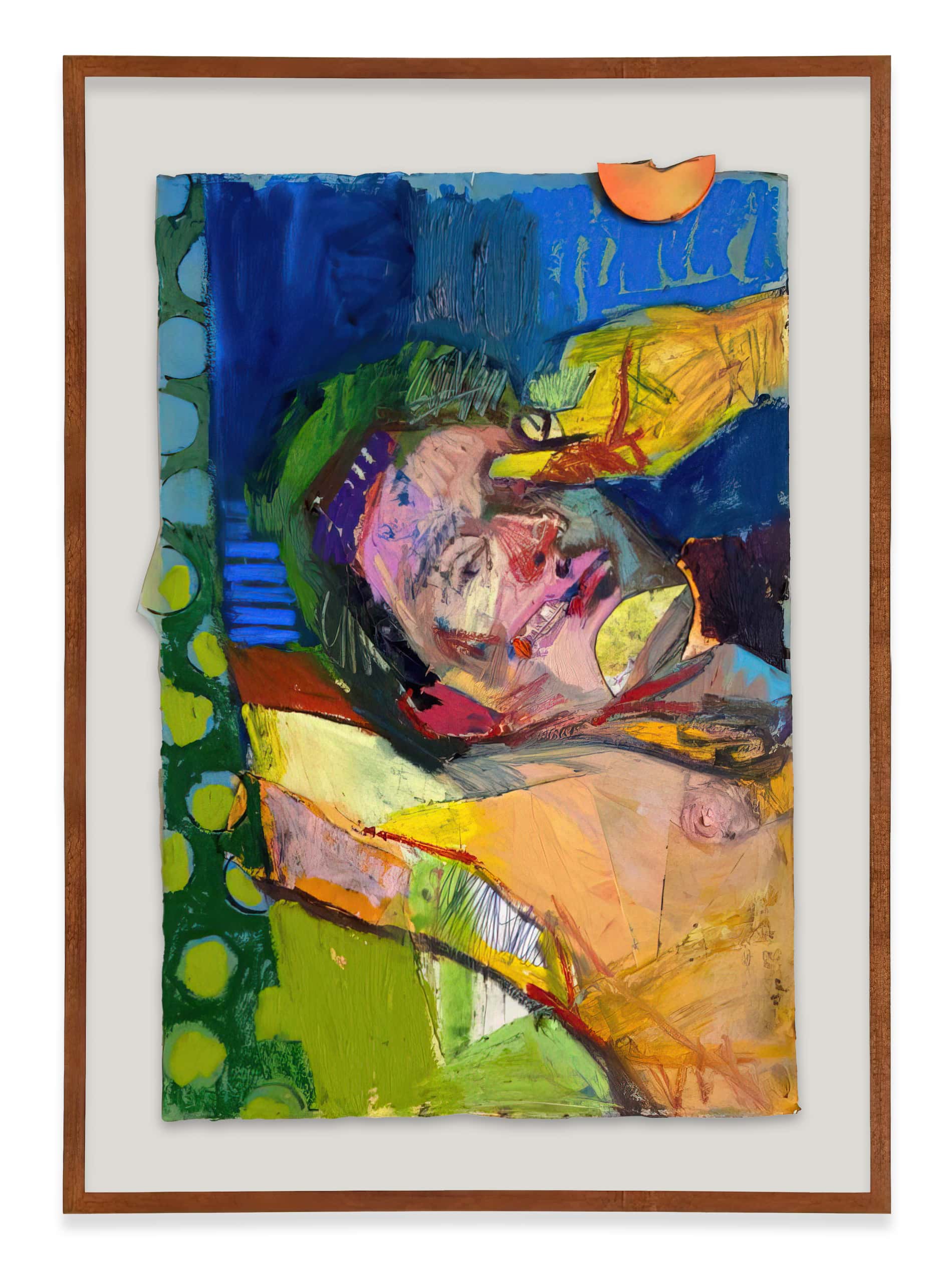Preview: Saturday 9 April (1-4pm)
Exhibition: 10 April – 14 May 2022
Press Release
Artist Video
PDF catalogue of works
Supporting Exhibition Text by Sasha Bogojev
I sit here in the dark holding a candle that throws my divided shadow across the room… I have not moved for many hours. Years, a lifetime, eddy past.
– Derek Jarman, Modern Nature
You cannot find peace by avoiding life
– Michael Cunningham, The Hours
Andrew Salgado returns to BEERS for his fifth solo show with the gallery, following both 2020’s Strange Weather and 2016’s The Snake. The new body of work, entitled A Never-Setting Sun, is both a critical look at the creative process, as well as a deep-dive into various themes of interest to the artist.
Salgado approaches themes of failure, inspiration, and exuberance with his wry sense of humor and trademark style, but states that, at its core, the show is ‘about making mistakes.’ This time around, those Salgado-isms seem tempered. Gone are the bells and whistles and loud proclamations (well, not completely,) but Salgado has edited the works to a place of quiet introspection. He seems comfortable pursuing a quieter path. The resulting body of works are more reflective, introspective, and metaphoric, but also maintain an element of silliness, the fantastical or absurd, pulling inspiration from his ongoing love of literature, poetry, and Greek Mythology.
“Look at this endless horizon, this never-setting sun.”
***
Supporting Exhibition Text by Sasha Bogojev (writer & curator):
“Life can only be understood backward, but it must be lived forwards,” Søren Kierkegaard stated in the mid-19th century, suggesting that existence can never be fully understood. While encompassing the hopelessness of the situation, the Danish philosopher did leave just enough room to consider chronicling one’s time in the hope to contribute to this lost cause. And one of such efforts, Derek Jarman’s meditative and stimulating diary Modern Nature, is quoted as the direct source of inspiration for Andrew Salgado’s latest body of work comprising Never-Setting Sun. The poetic title is referencing the infinity of time in which we’re given a tiny moment to experience everything we recognize as a lifetime, as well as suggesting the positive, sun-lit ambiance which permeates the energized imagery. Besides the obvious tributes to the English film director, stage designer, author, and gay rights activist (Modern Nature, A Chrysthanthemum For Derek Jarman, both 2022), the Canadian-born artist who is currently also experimenting with the written word format, is channeling Jarman’s contagious urge for deliberate acts of love and appreciation.
With some of the images being based on real-life people or moments, and others on stories told by iconic characters that can be used as metaphors (Icarus, Matejko’s Stańczyk), most of the works straddle reality with occasional ventures into full-blown fantasy. Showing sympathy for tragicomic heroes and urging for kindness towards the idea of making mistakes, Salgado is having a special spot for the stories and protagonists that aren’t playing by the rules. Prompted by their legacy and attitude, he is now more evidently steering away from the expectation that things need the reason to exist in the painterly environment and is frequently playing with proportions, perspectives, and feeling less restricted in general. This concept extends to the body of work as a whole through a vague connection thread between the pieces, which creates a loose “before and after” outline instead of a clean, linear narrative. With each of the works carrying a distant clue to another one, the first and the last painting in that chain are completely unlinked. Evoking the dynamics of the stream of consciousness, they are another remnant of Salgado’s passion for reading and writing that seems to have opened a new way of expression.
Portraying almost exclusively male figures, regularly nudes, the poeticism in the work goes beyond his earlier concerns about gay identity and is now encompassing all of male identity. Although rarely portrayed with the expressive articulation of emotions, it’s the interaction of his muses with their surroundings and their body language that conveys the emotional and psychological setup of each scene. Borrowing Jarman’s vision of absolute resistance and individuality, with an exception of a couple of bawling figures (Estuary To Sea or Dancing To Nabokov, both 2022), the protagonists are portrayed mostly indifferent, yet firmly grounded within their surroundings. Even when falling from the skies (Dear Daedalus, 2022), they are resolutely creating a space for themselves within sometimes dubious environments (Kestrel Spring, Solstice (Stanyzk’s Escape), Last Parade, Everything Was Beautiful (And Nothing Hurt), all 2022), channeling the distinctive, surrounding-imposed trait of queer nature.
Sincere in his intention while fundamentally playful, quirky, or mischievous in his process and delivery, Salgado is not shy of stylizing his imagery and fully utilizing the materiality of paint and painting as a medium. Moving away from factuality and reason, the nuances become the playground in which the work strives and is able to tell stories about humanity, not through images of faces but with the atmosphere that extends over the entire picture plane. And although packed with drawing, painting, spraying, collaged cutouts, and a riotous color palette, the work doesn’t feel overworked. The fundamentally simple compositions imbued with drama, complex atmosphere, and intense emotional settings are allowing for the classic values and approaches by the likes of Gauguin or Matisse to intertwine with contemporary atmospheres and subjects which are of interest to his contemporaries such as Hernan Bas, Anthony Cudahy, or Louis Fratino. Often pushed to the very edge of becoming colossally intricate and contrived, this quality becomes work’s essence, successfully underlining points the artist is interested in. Bringing some sections awfully close to falling apart, this tension is used to glue the image into a compact whole. The physical, gestural manner of paint application leads to powerful, vibrant images in which slathering and layering of materials evoke a sense of dynamic and movement, while the composition still holds the ambiance of calmness and joy. In the end, the laborious technique reveals both the raw materiality of mark-making as well as the subject matter, placing those two aspects of the work in the same position to compete with each other in capturing and nurturing the viewer’s attention.
Sasha Bogojev (writer & curator)

